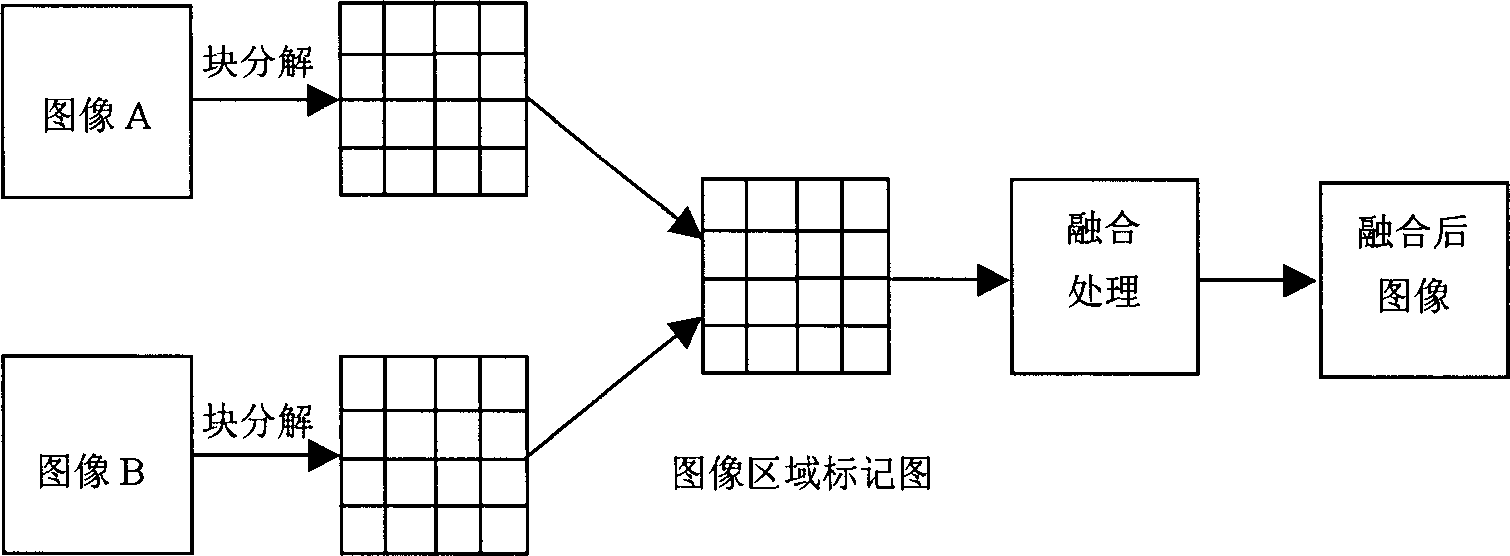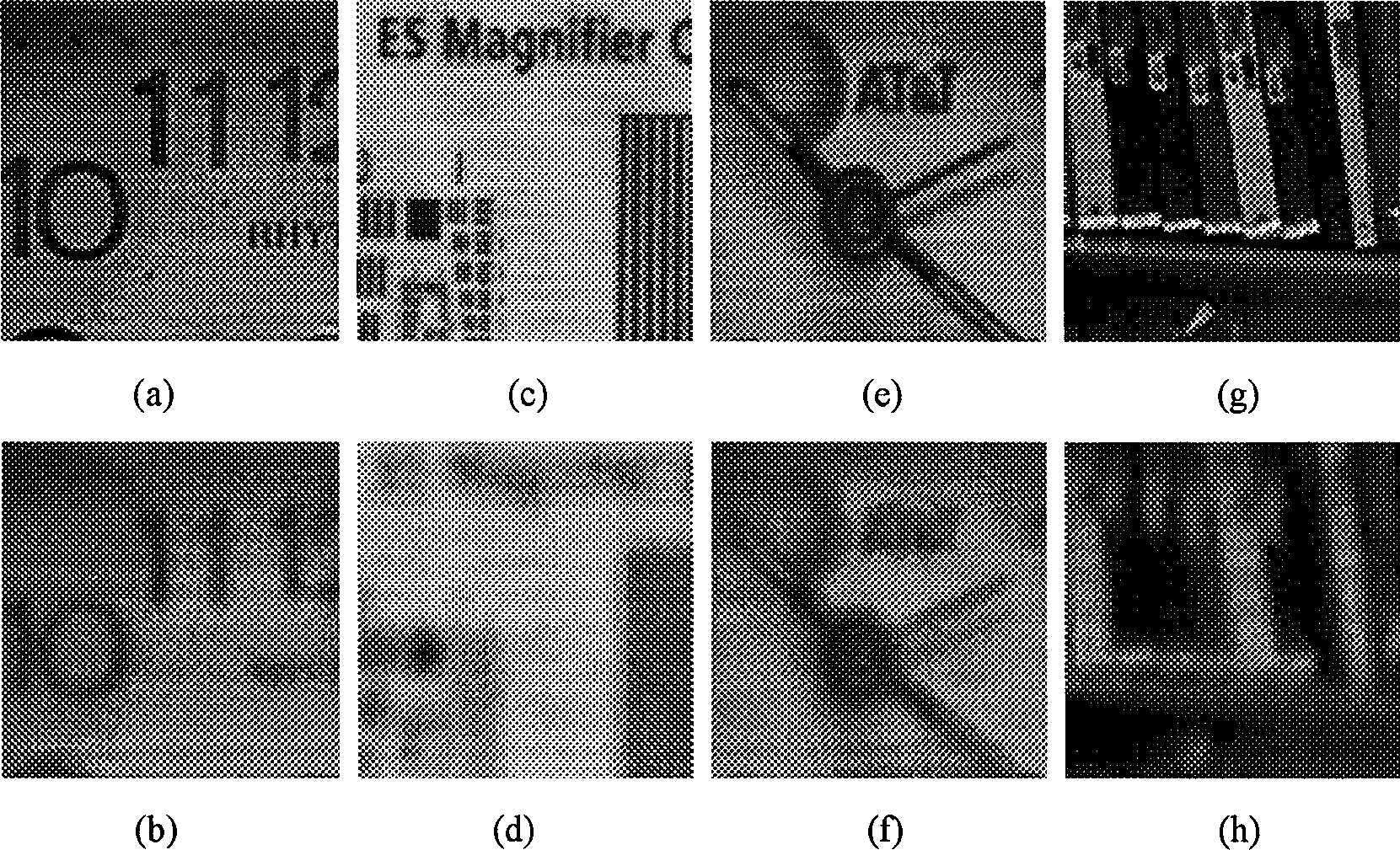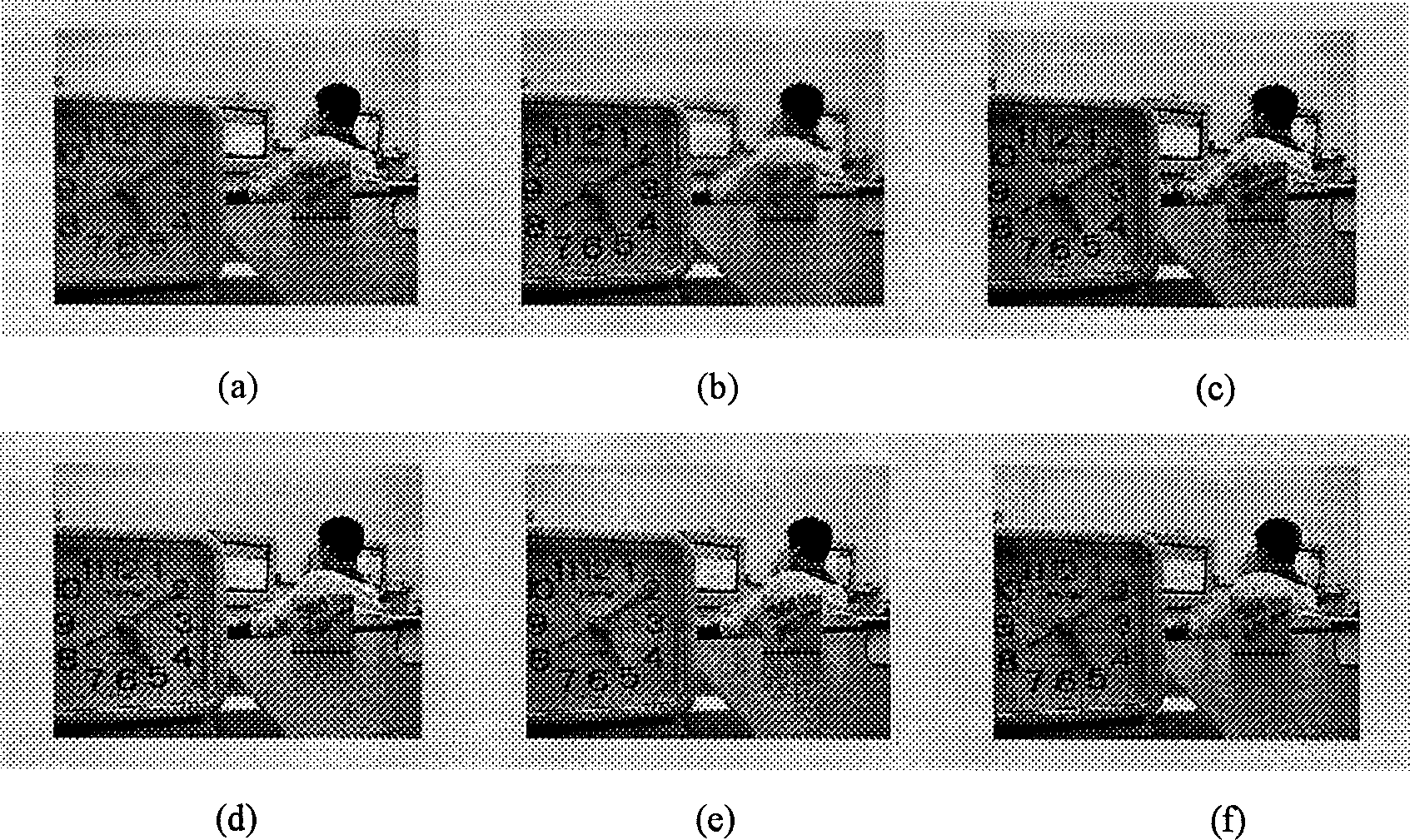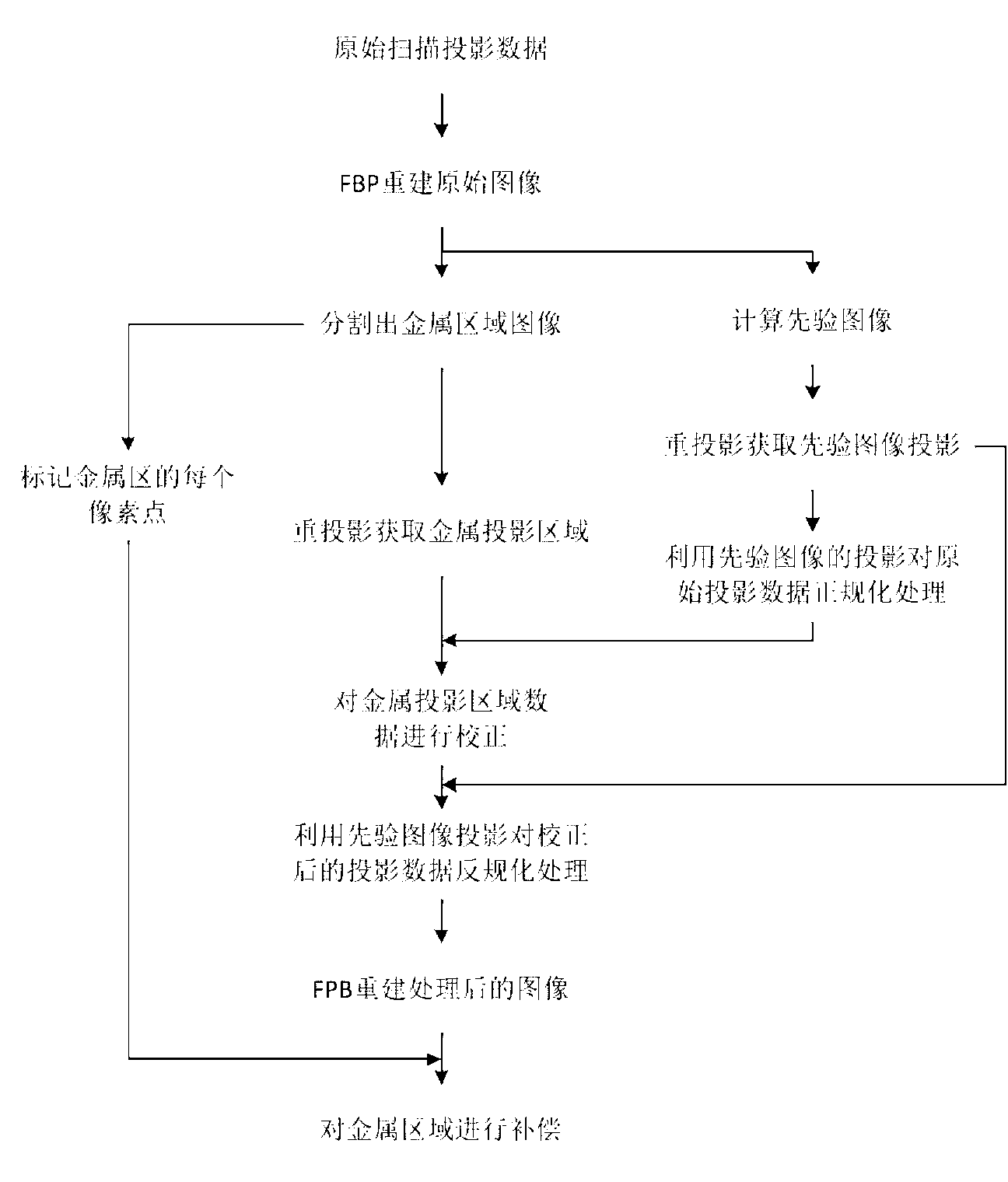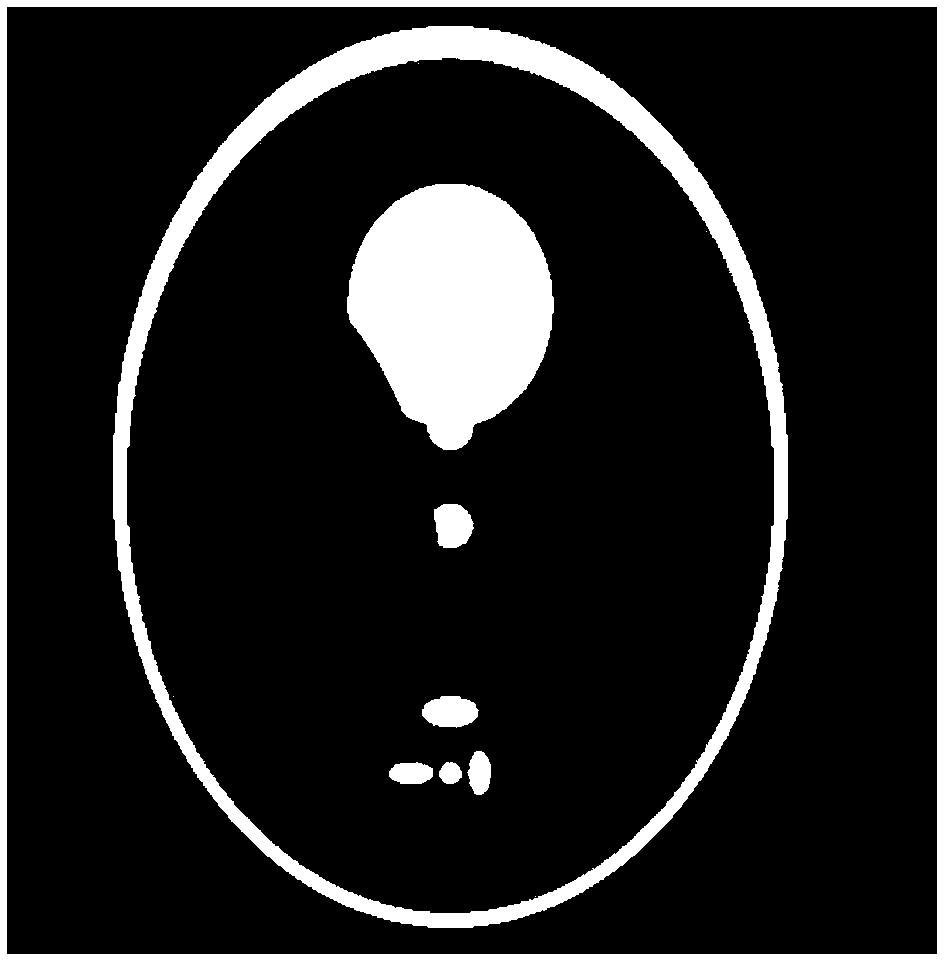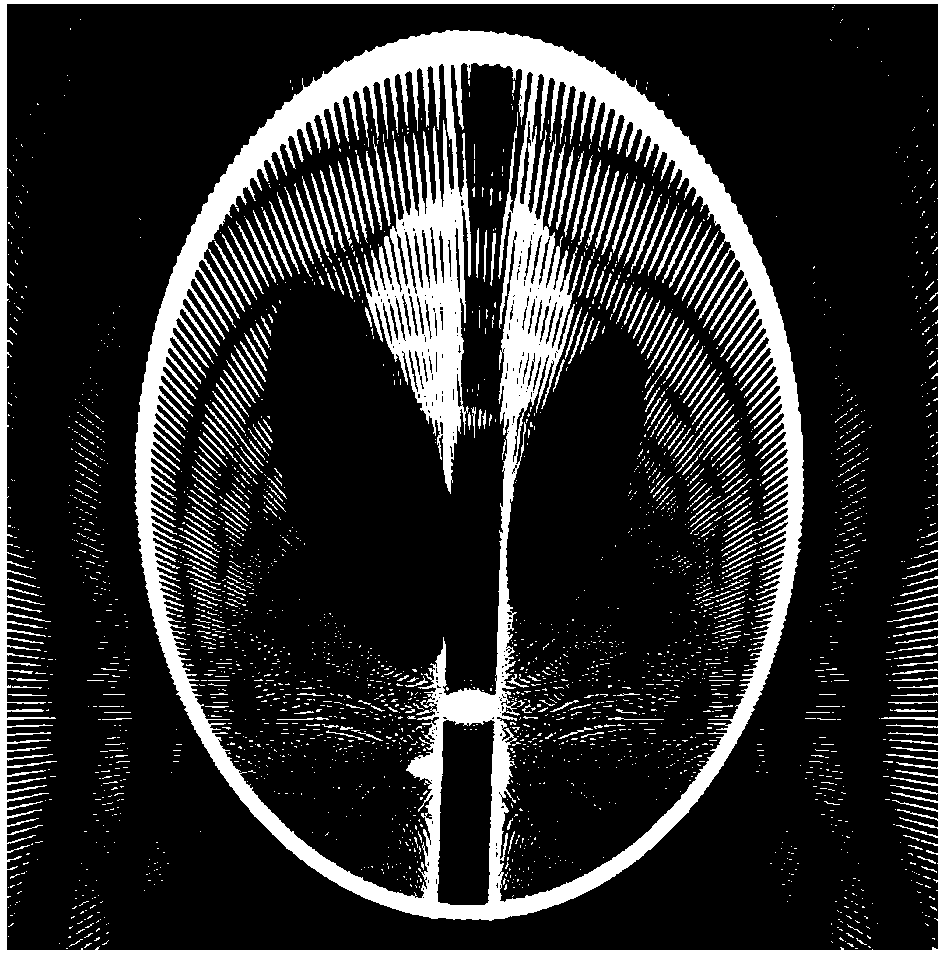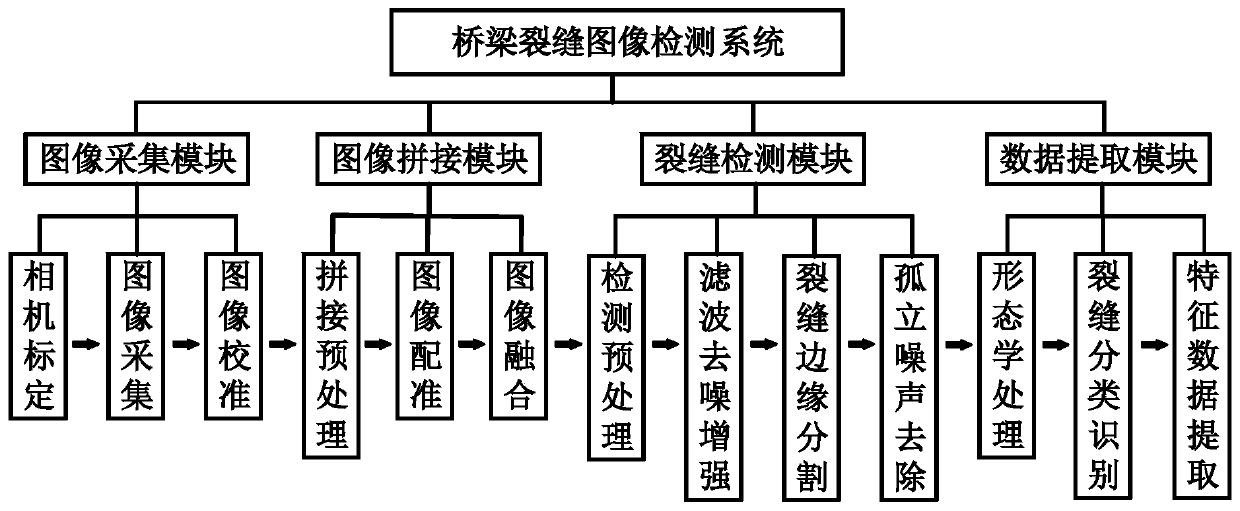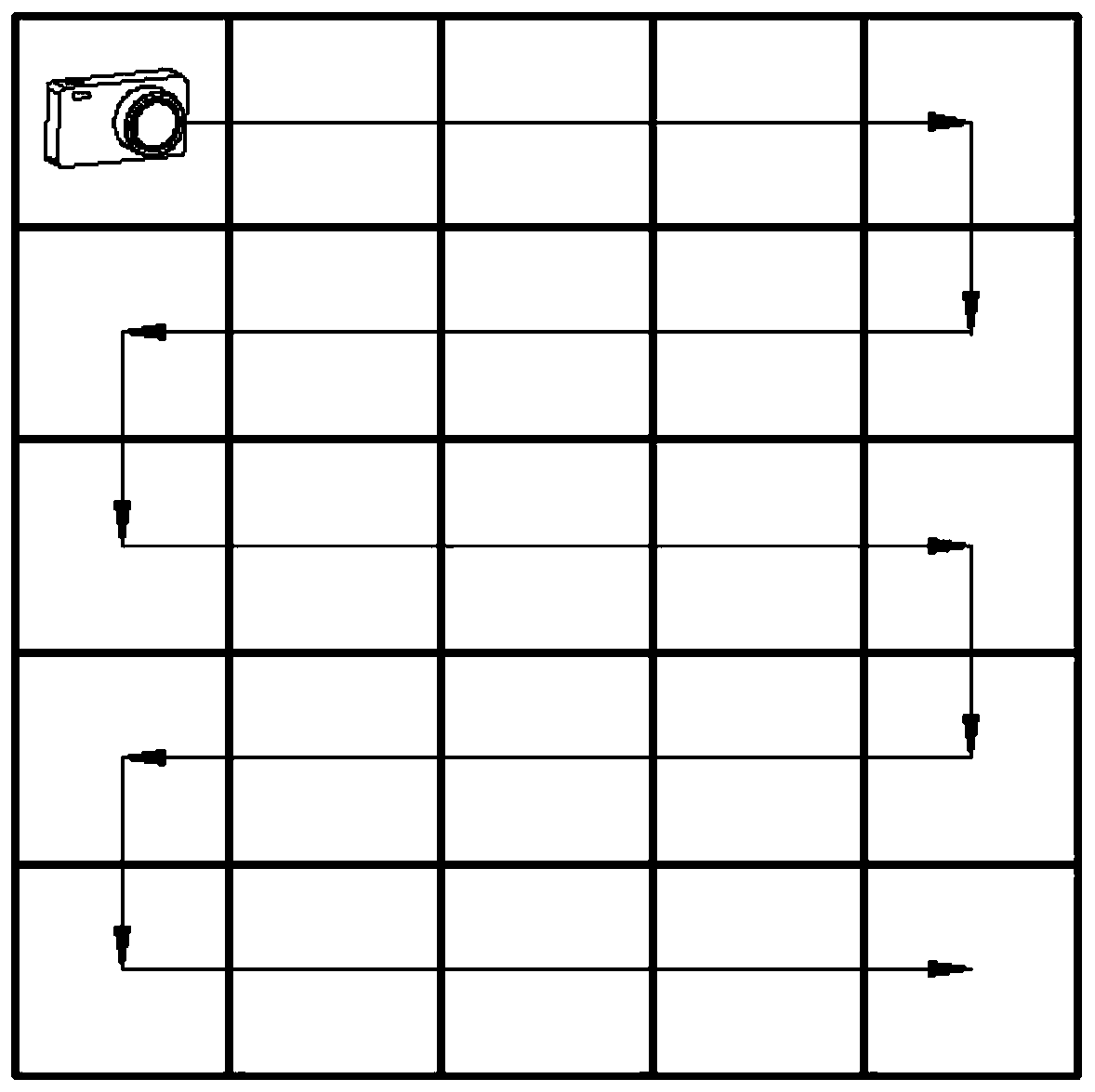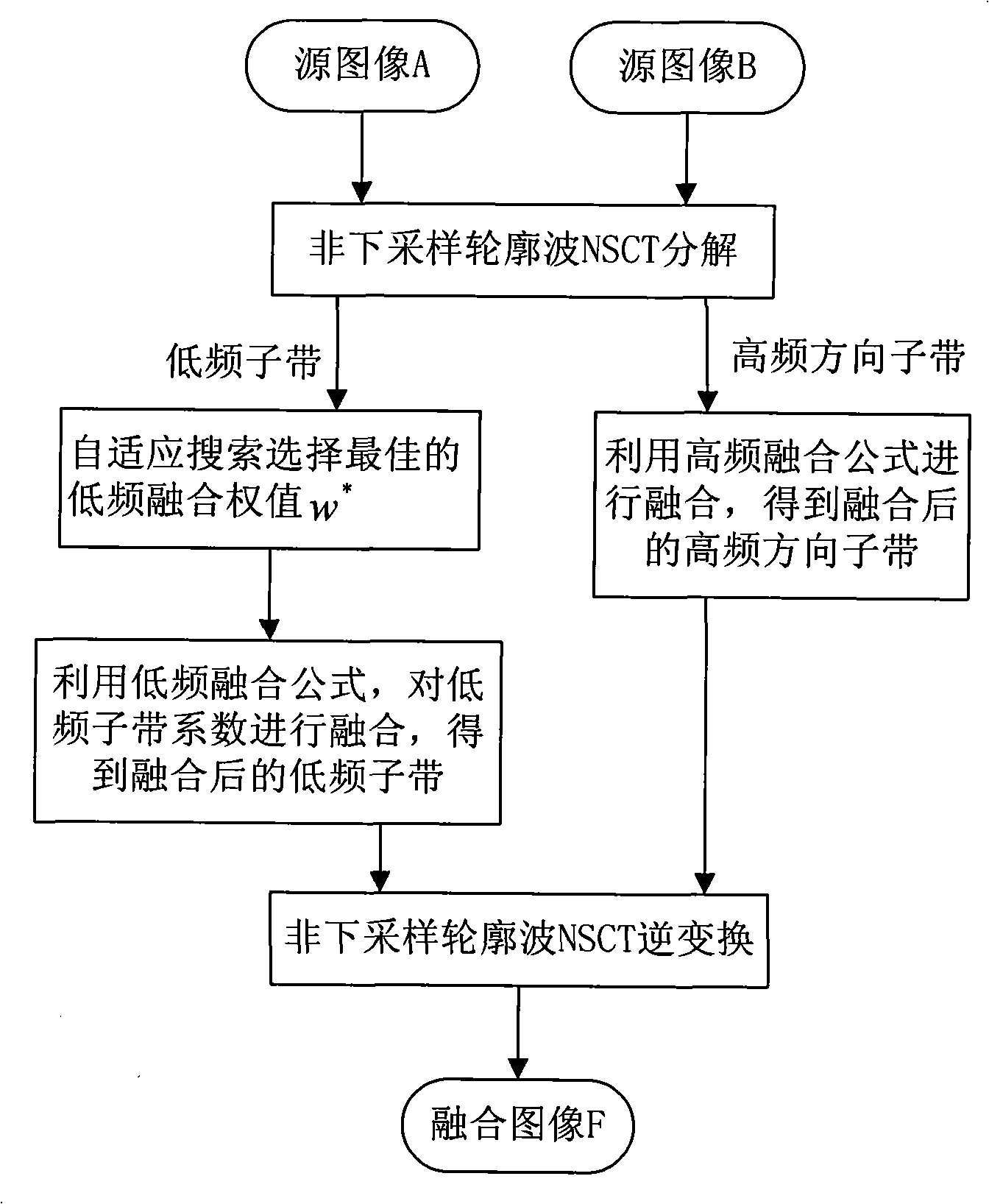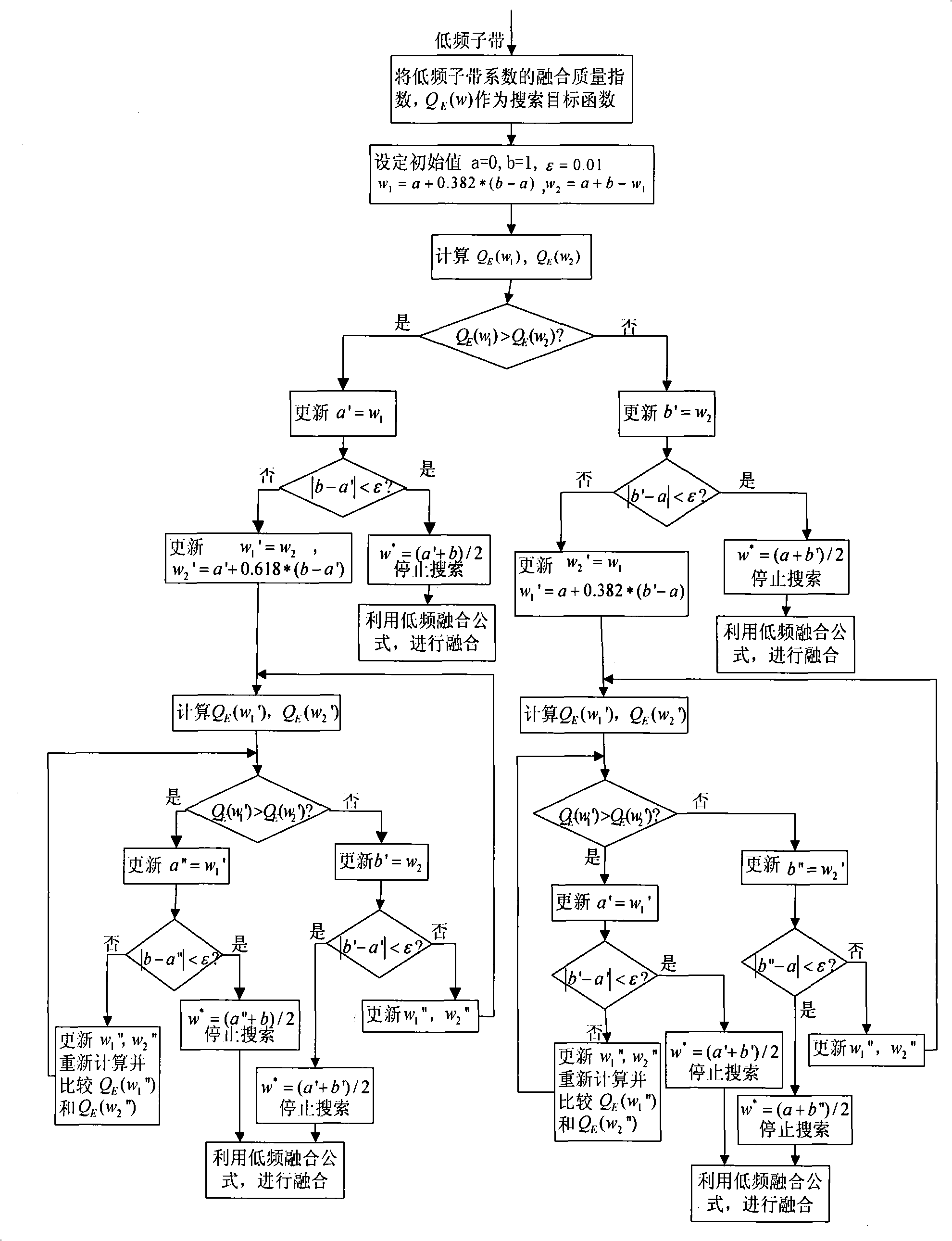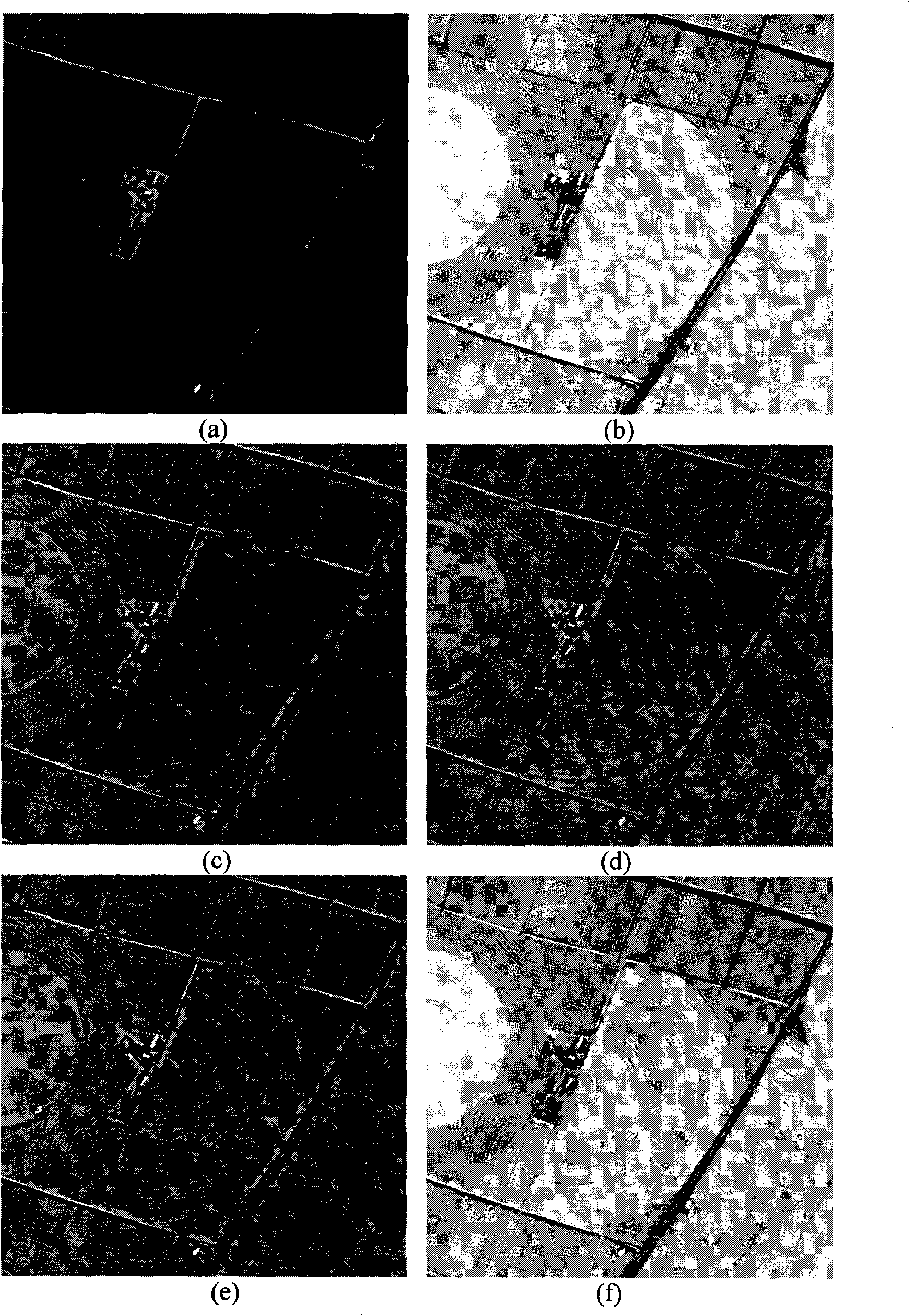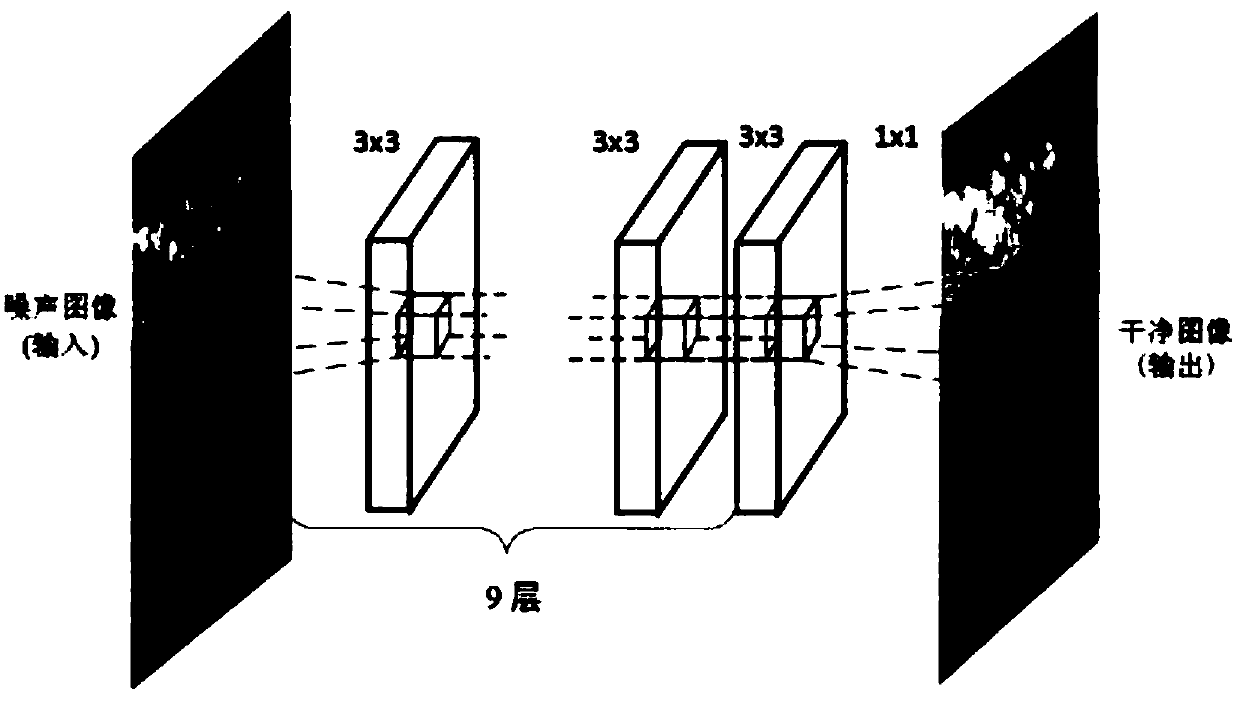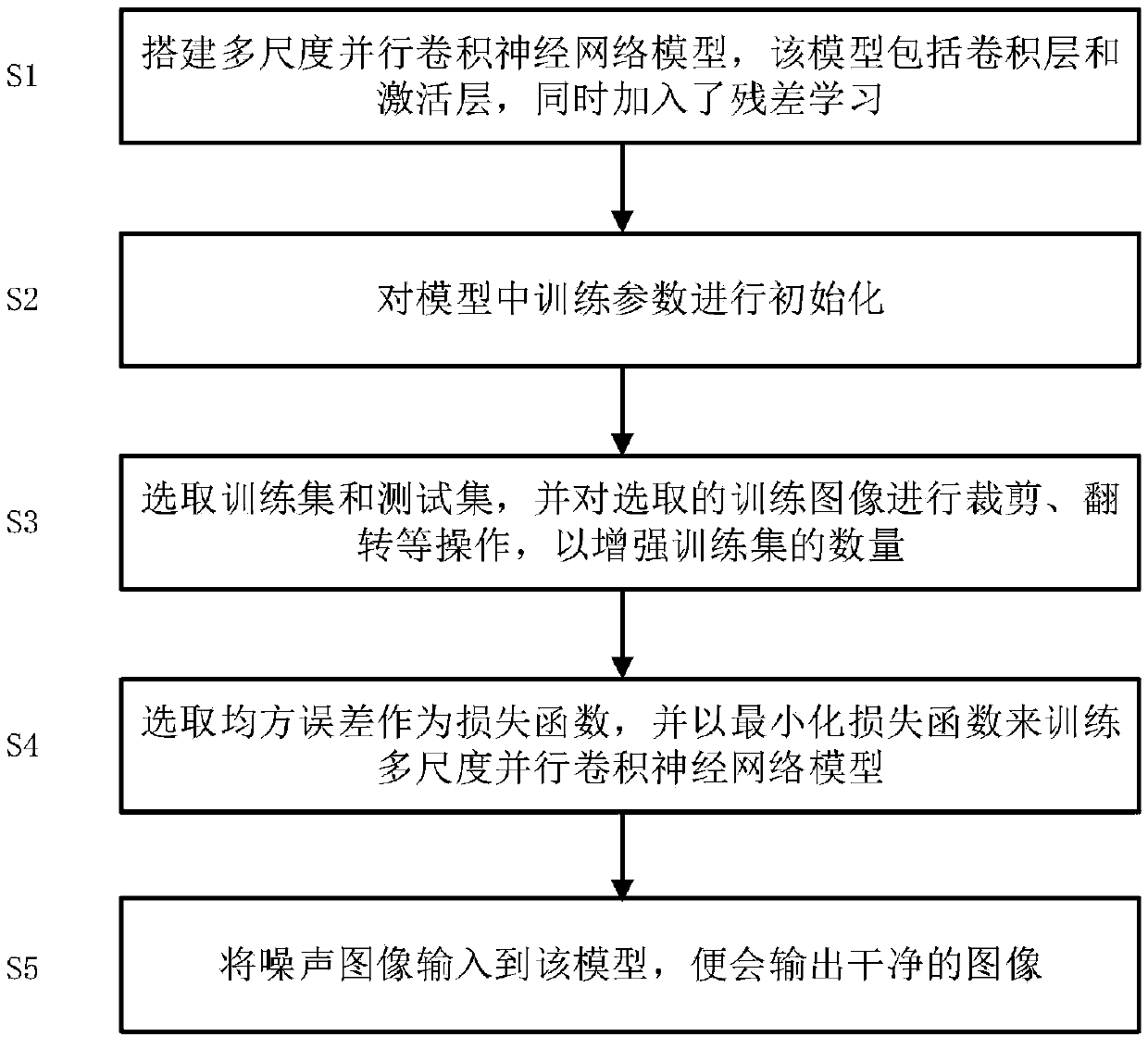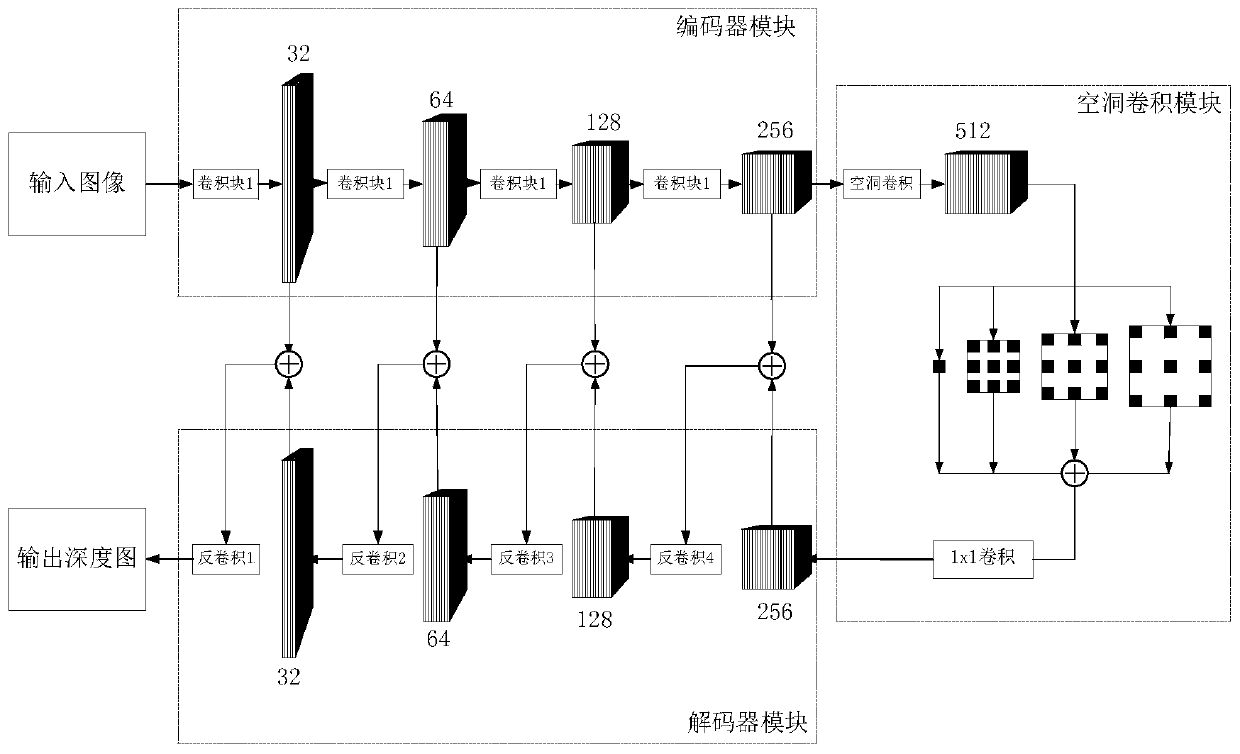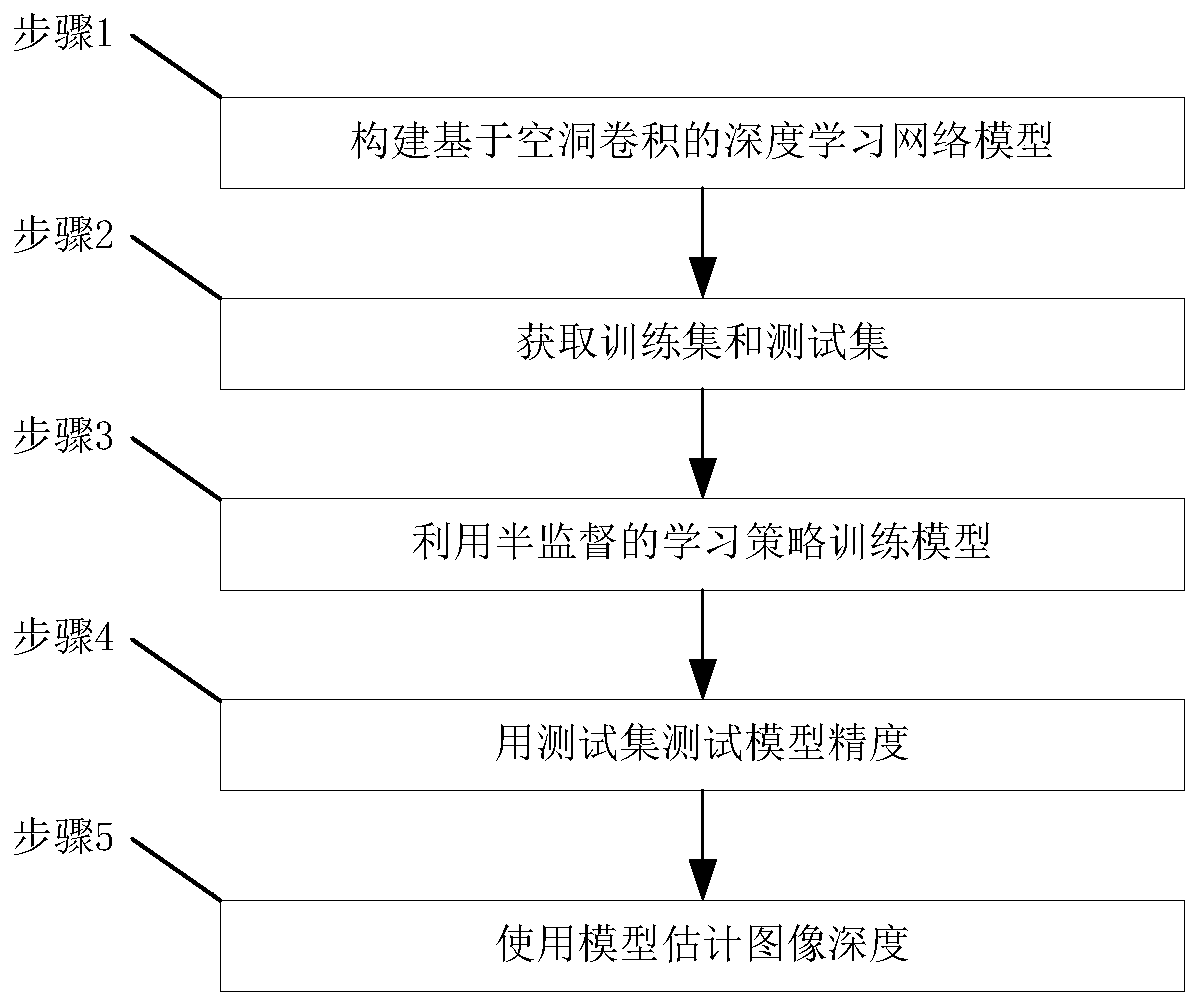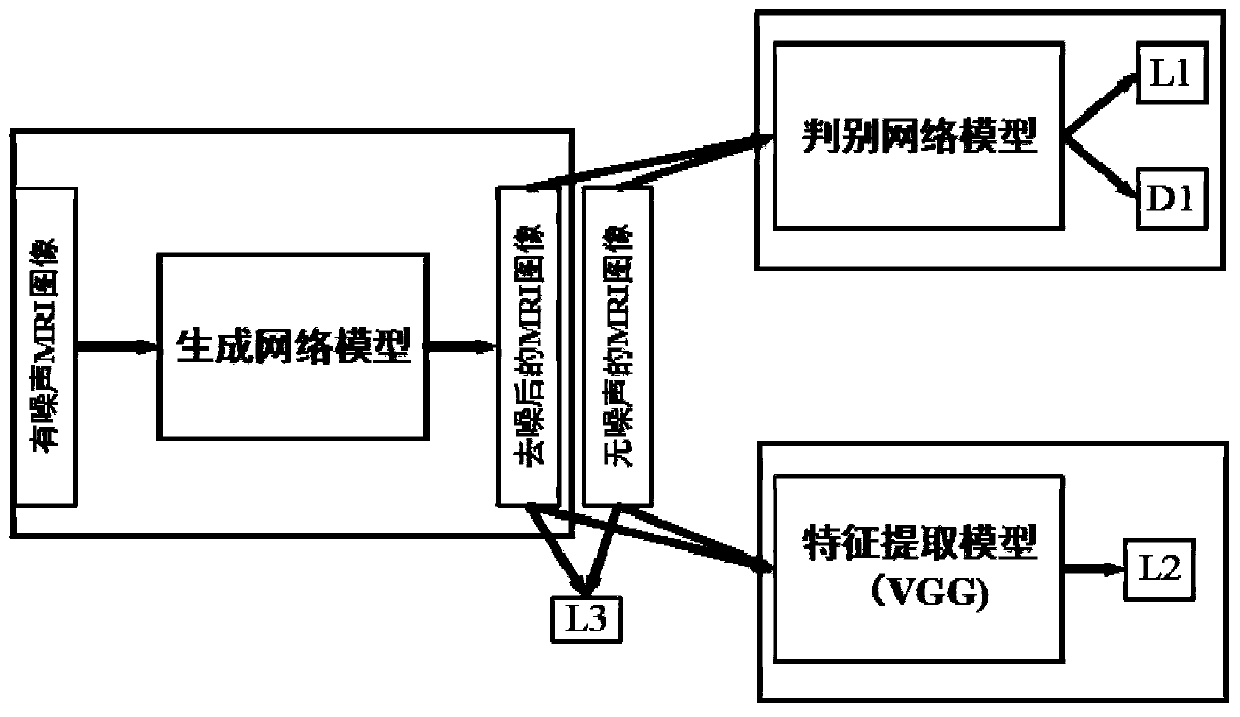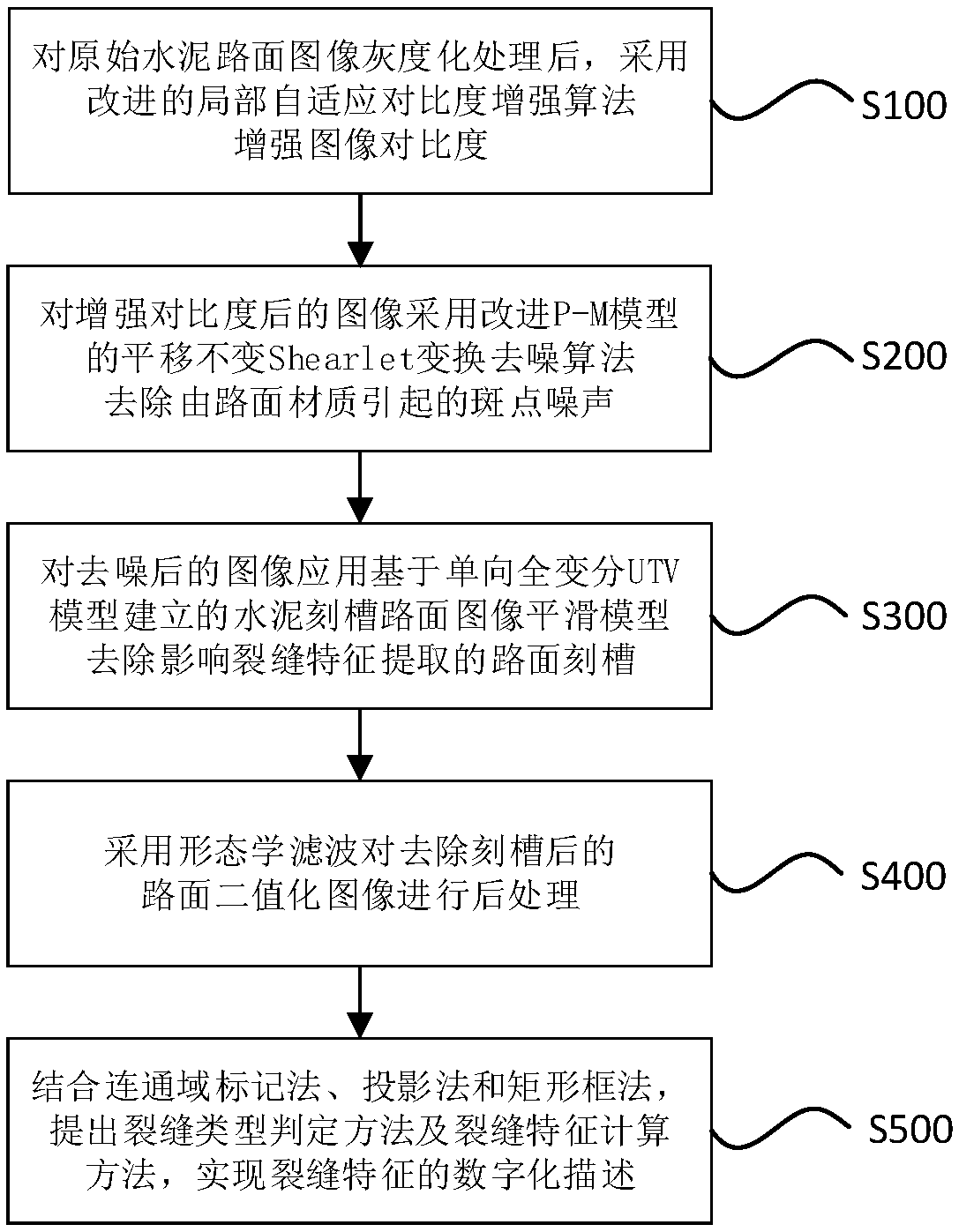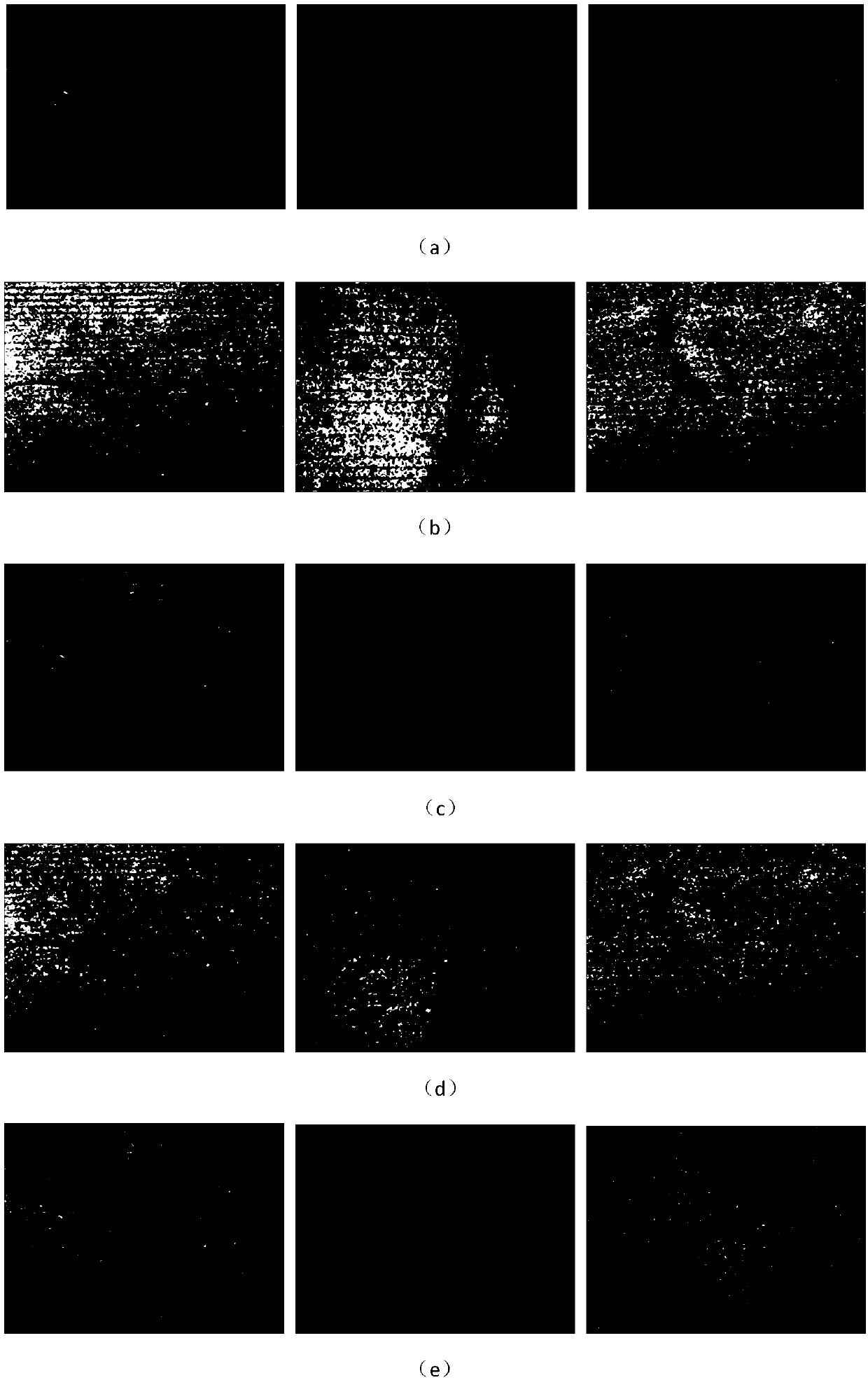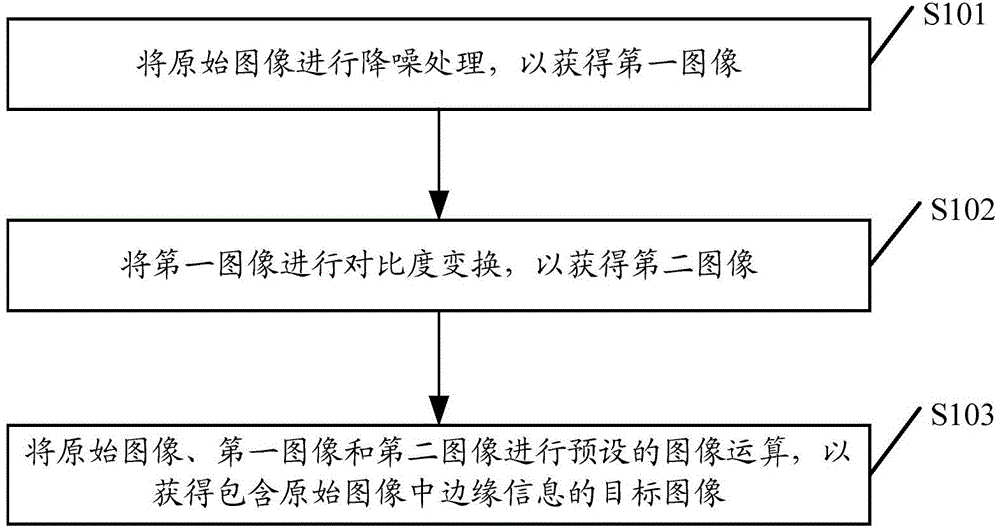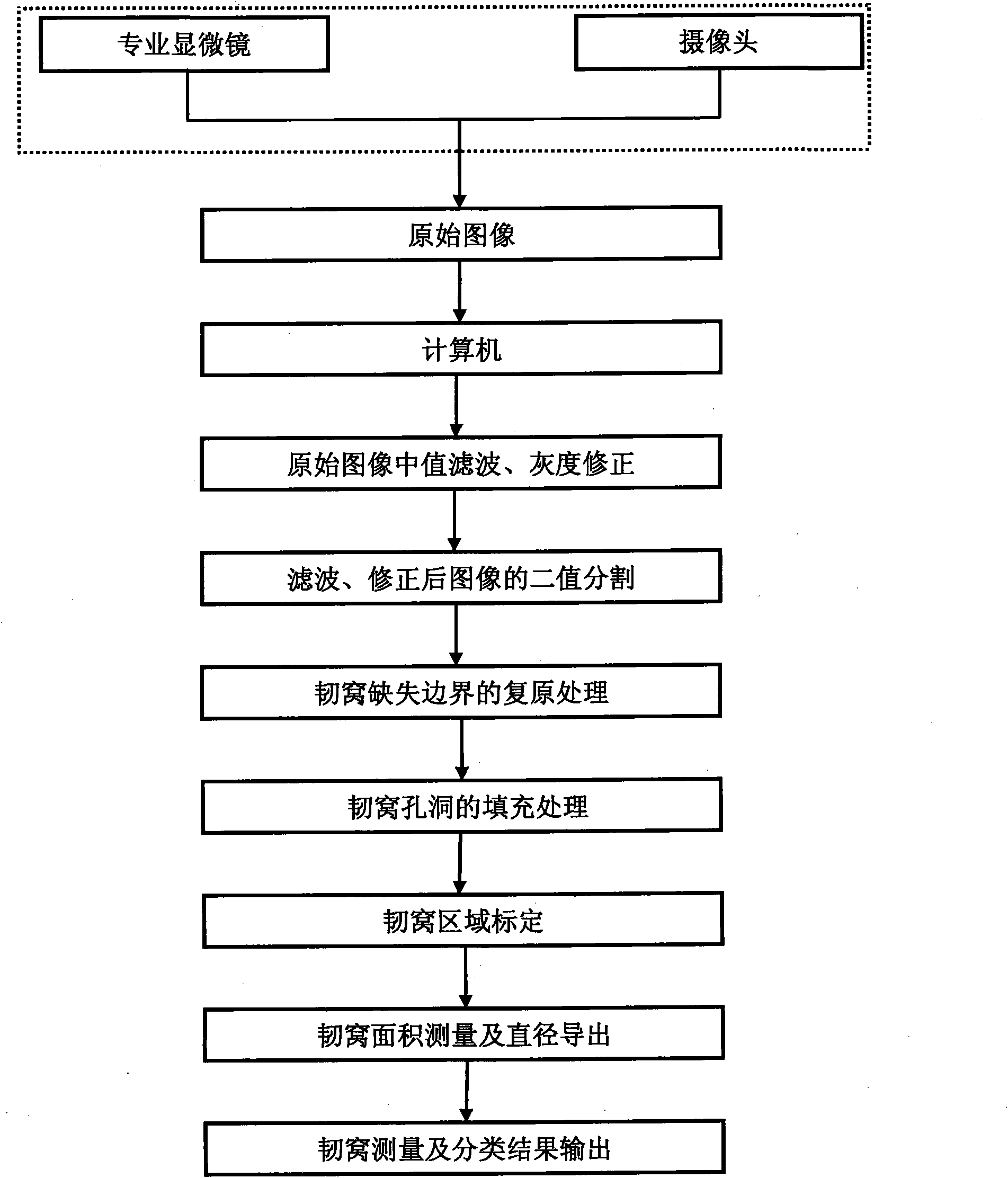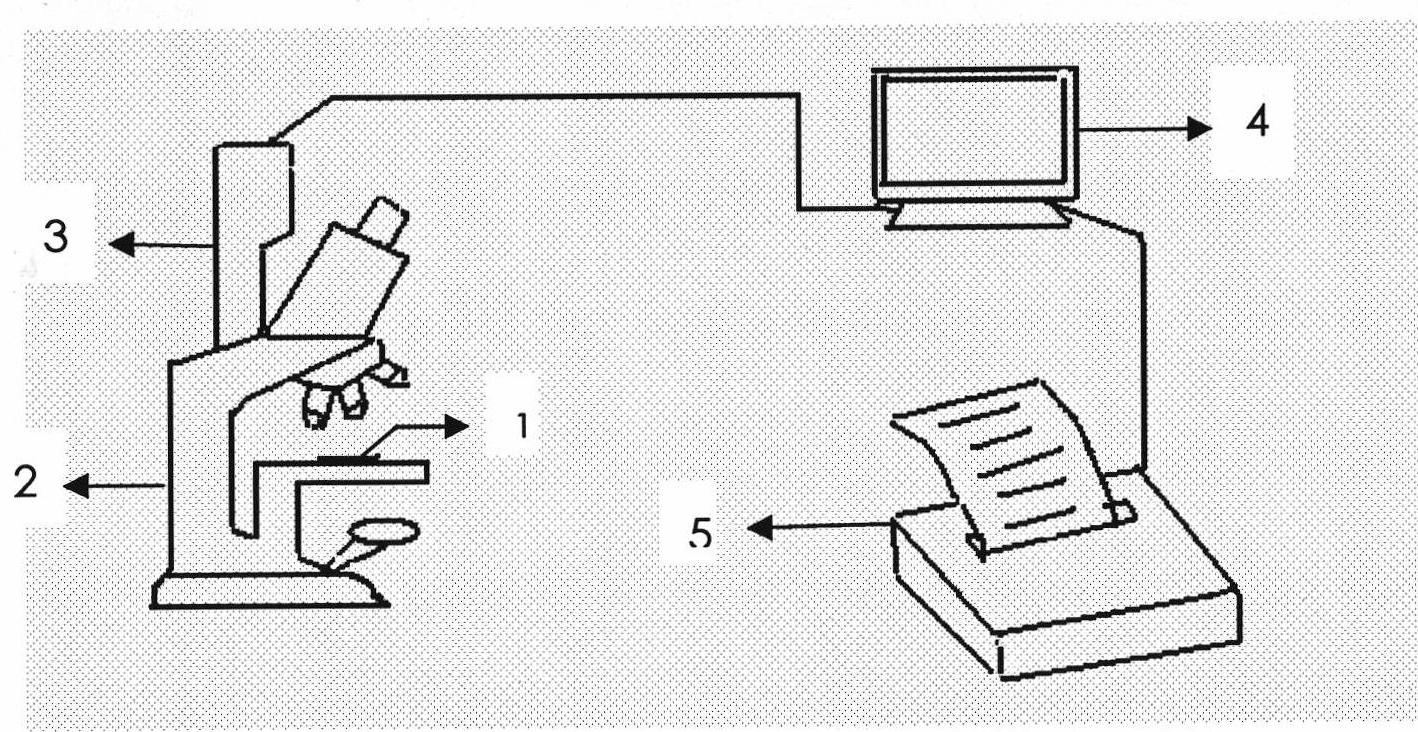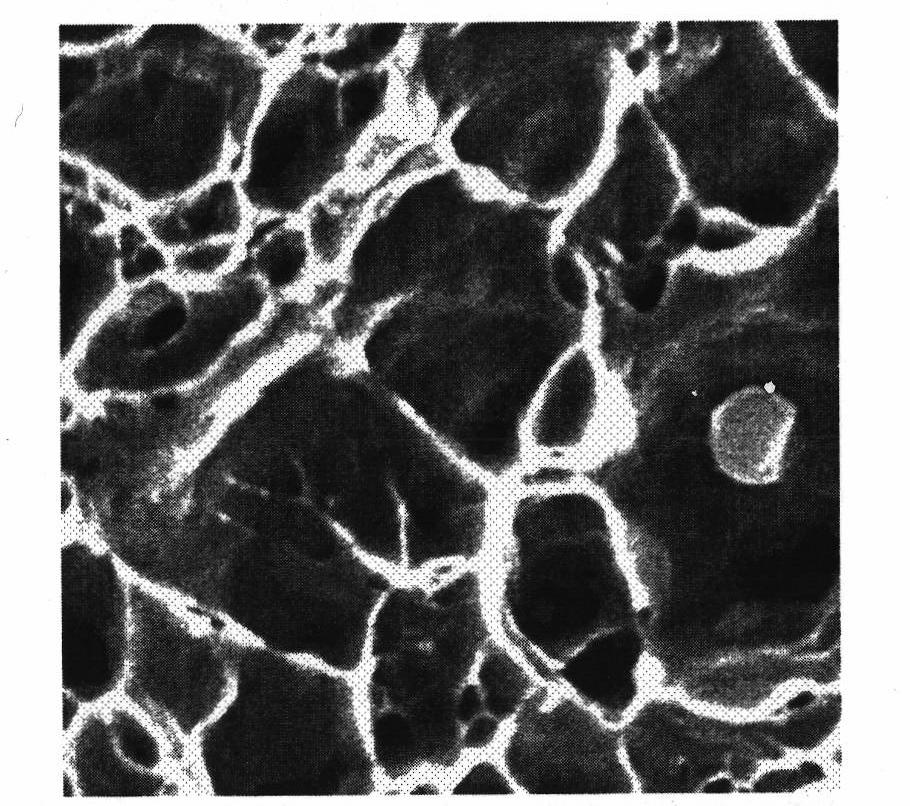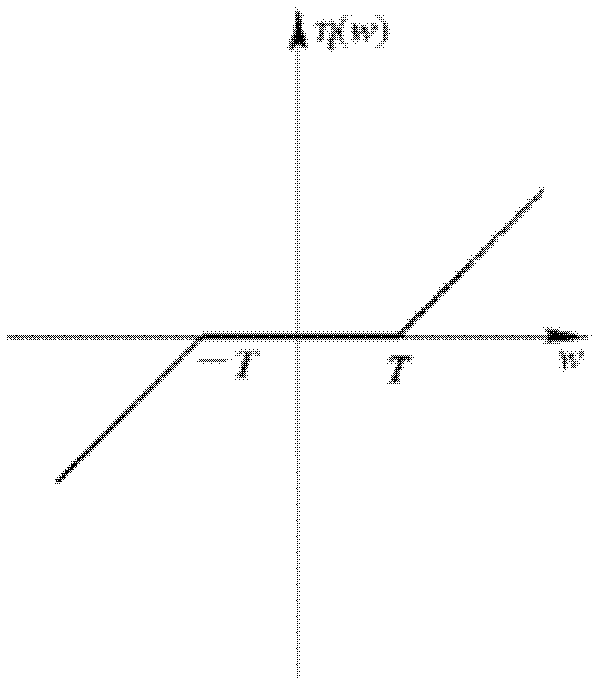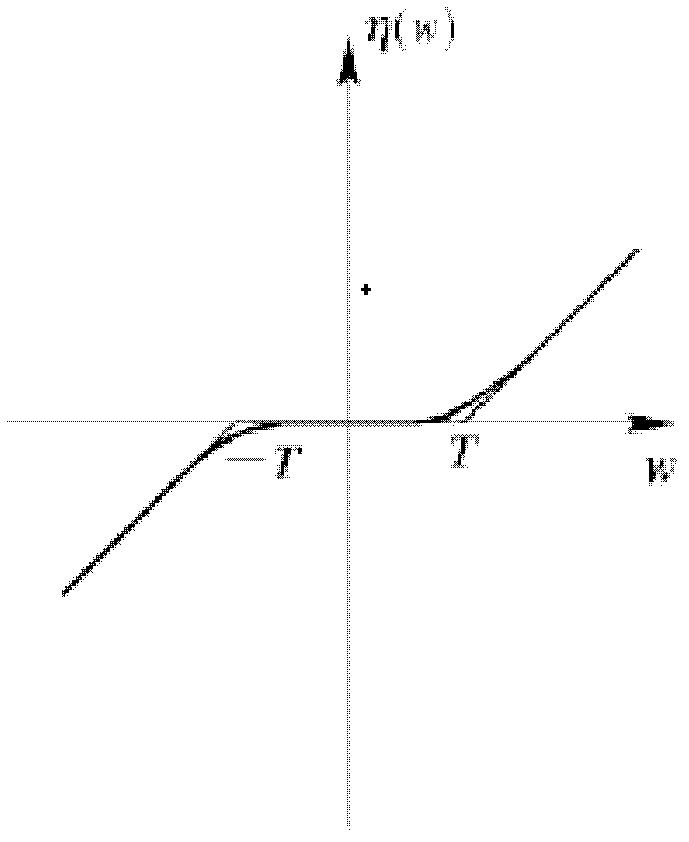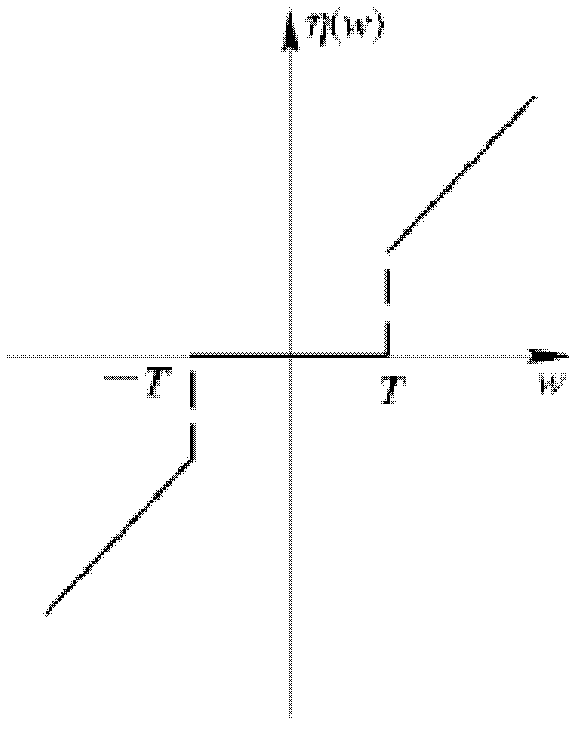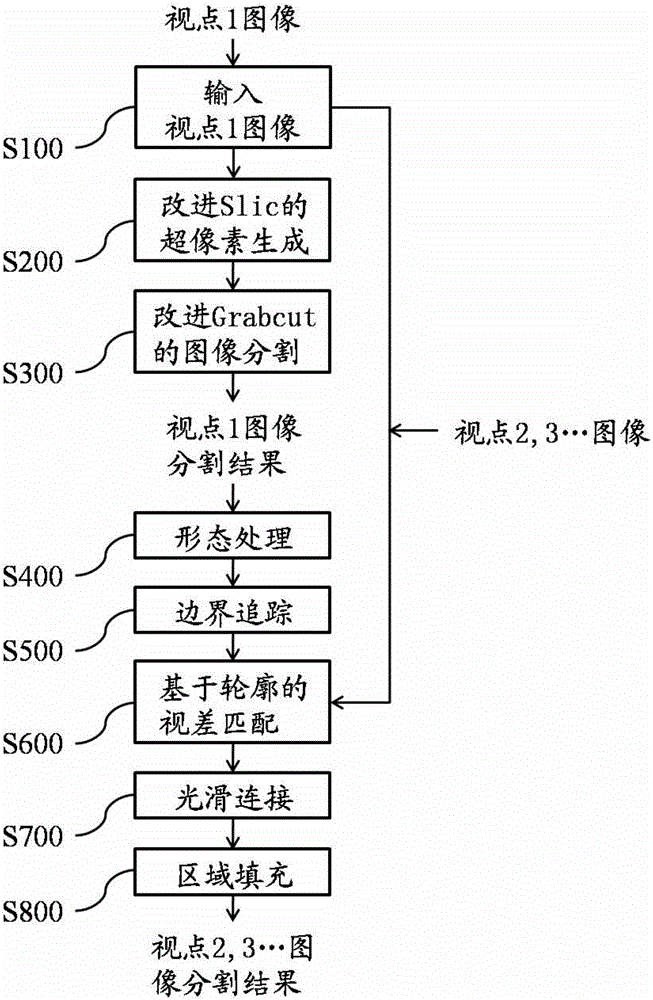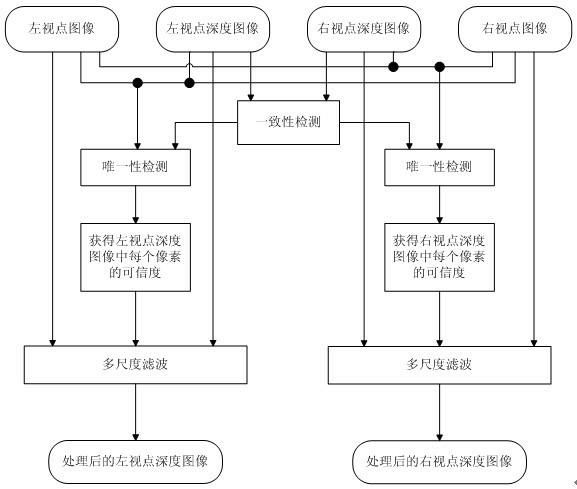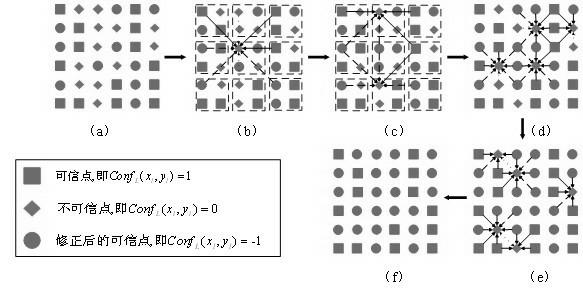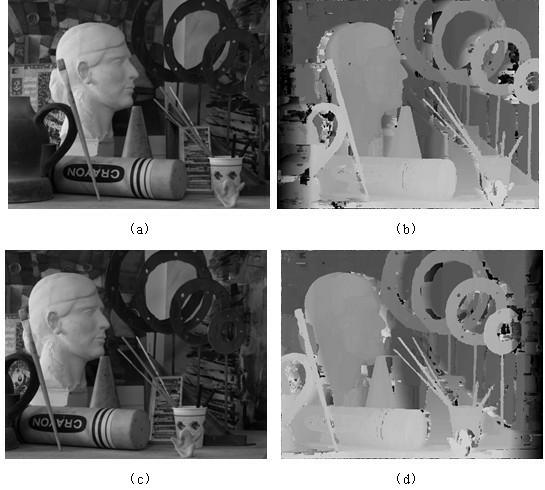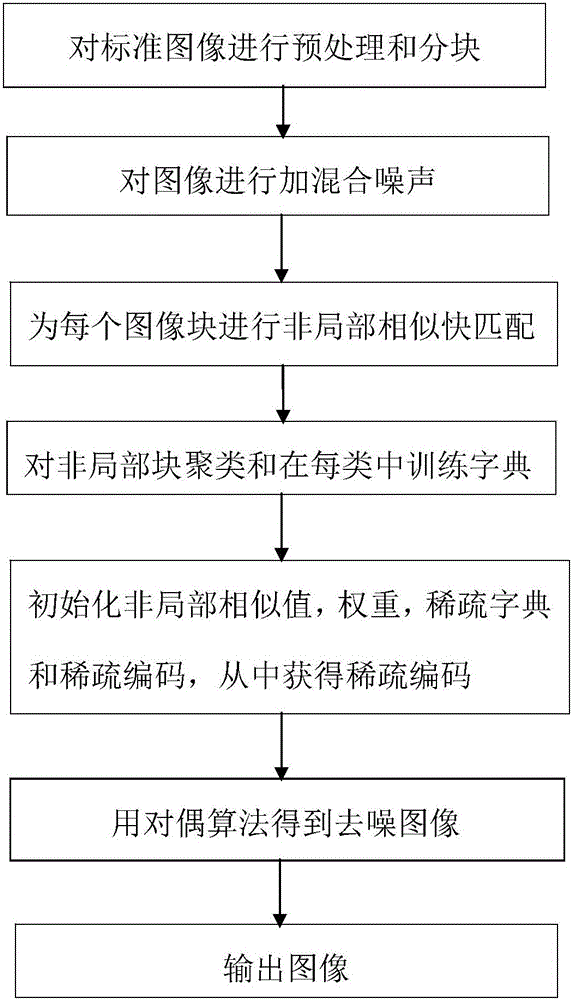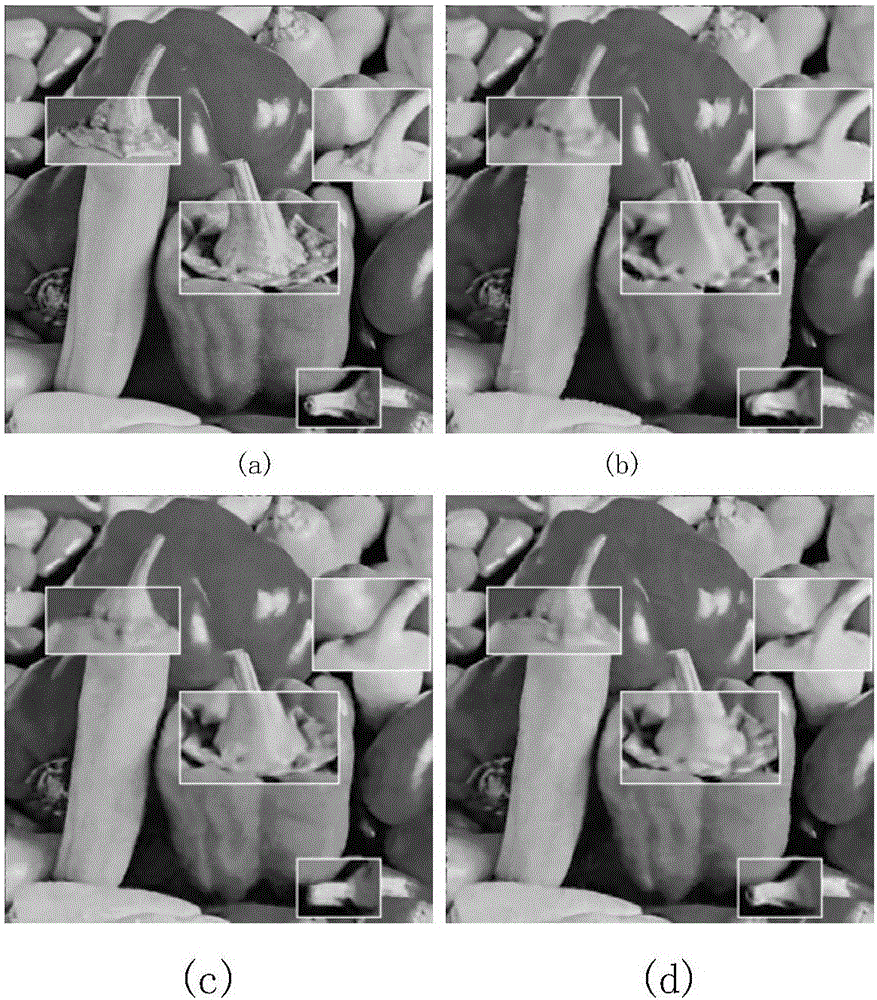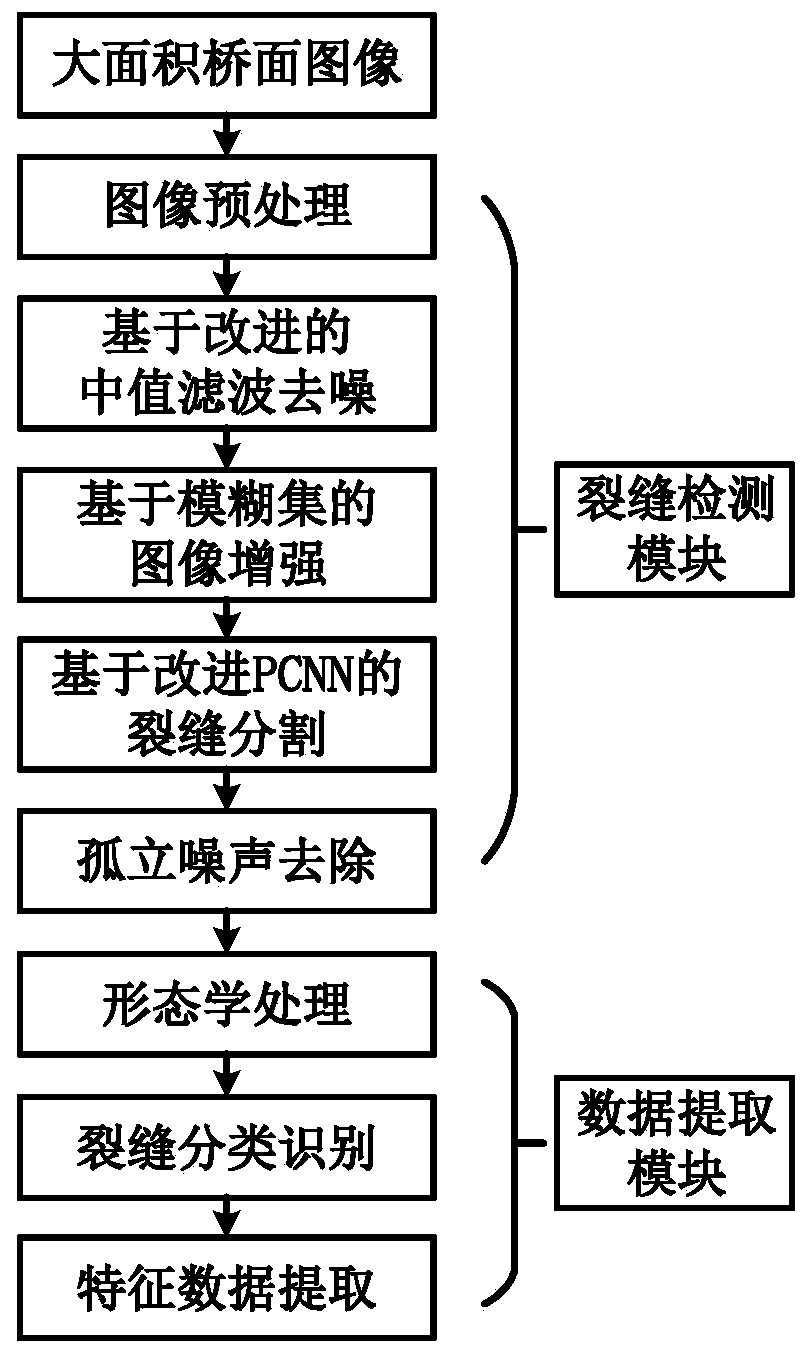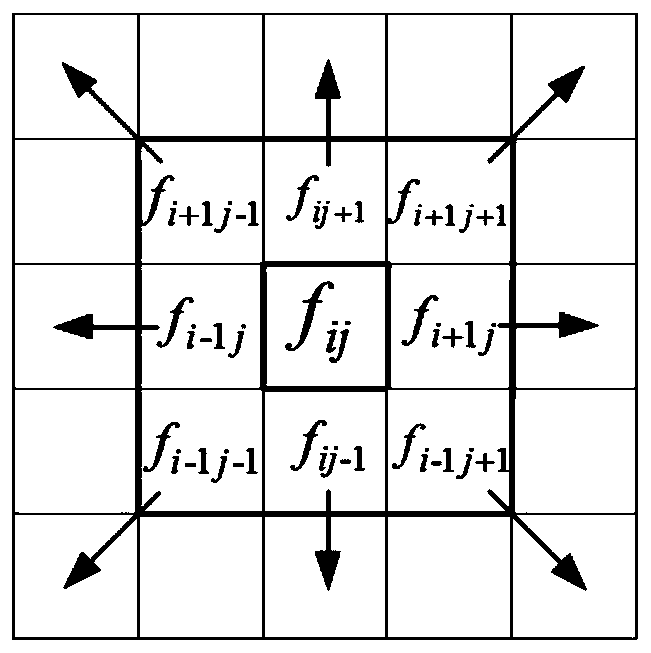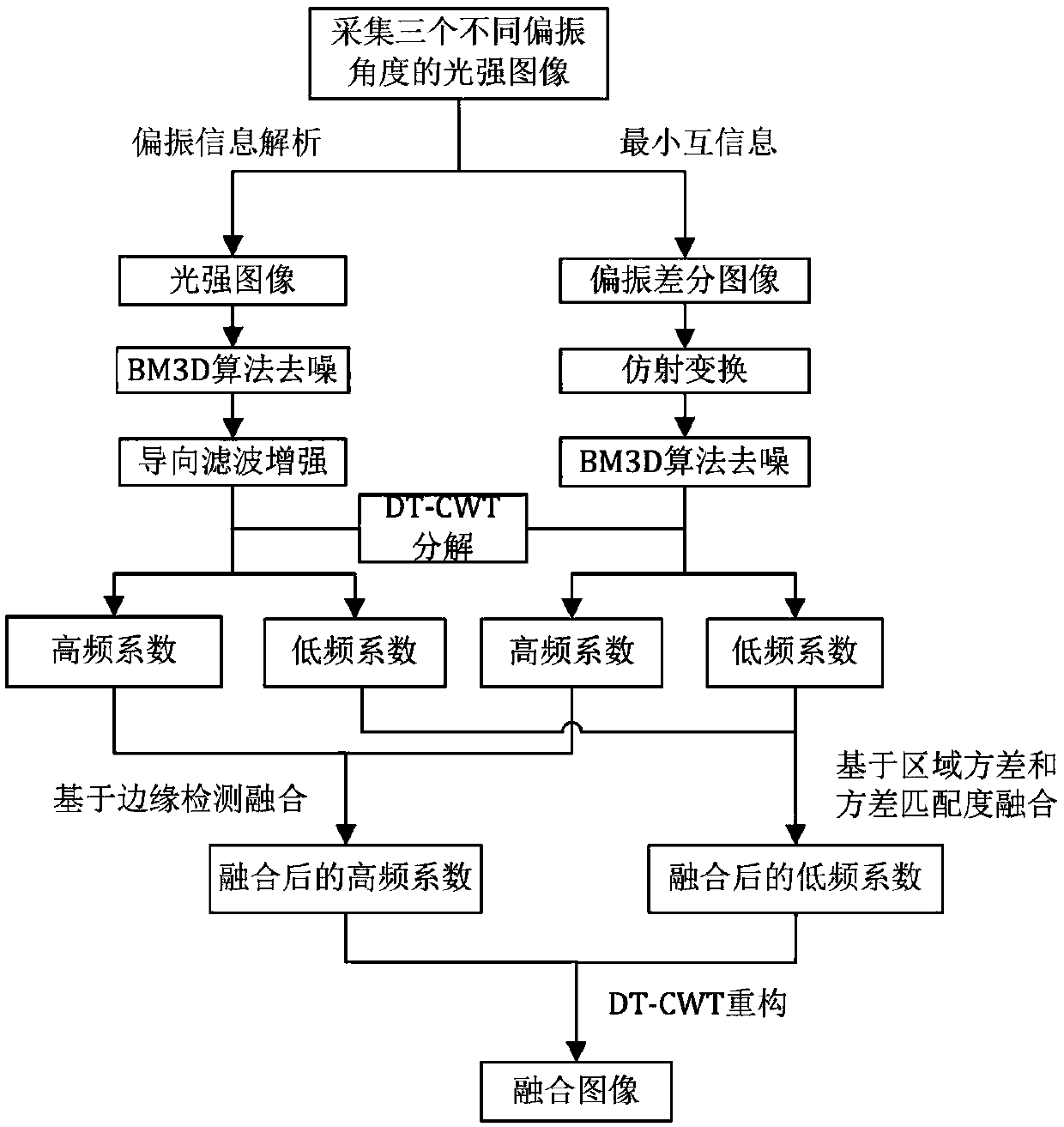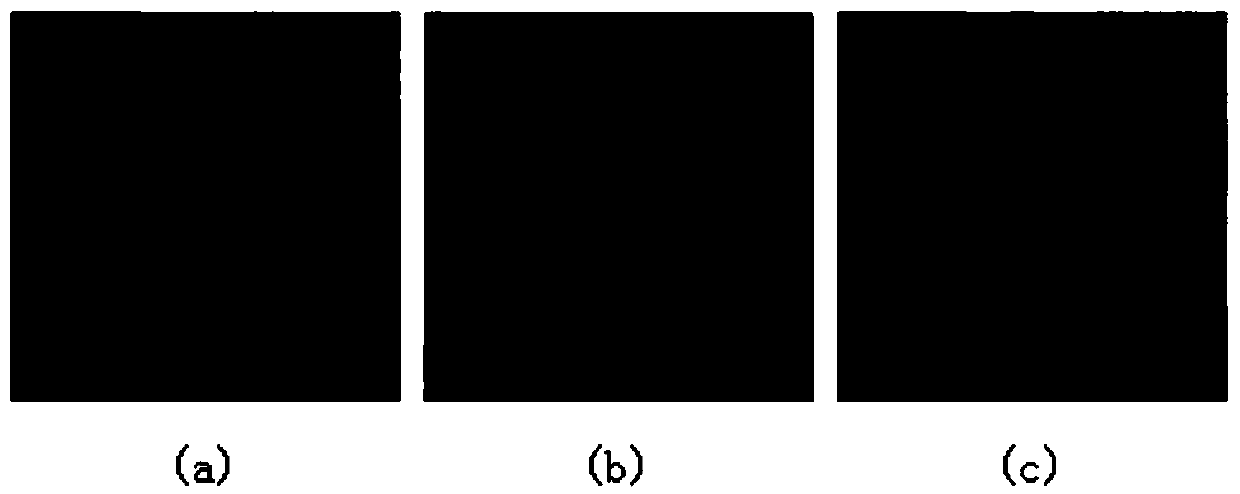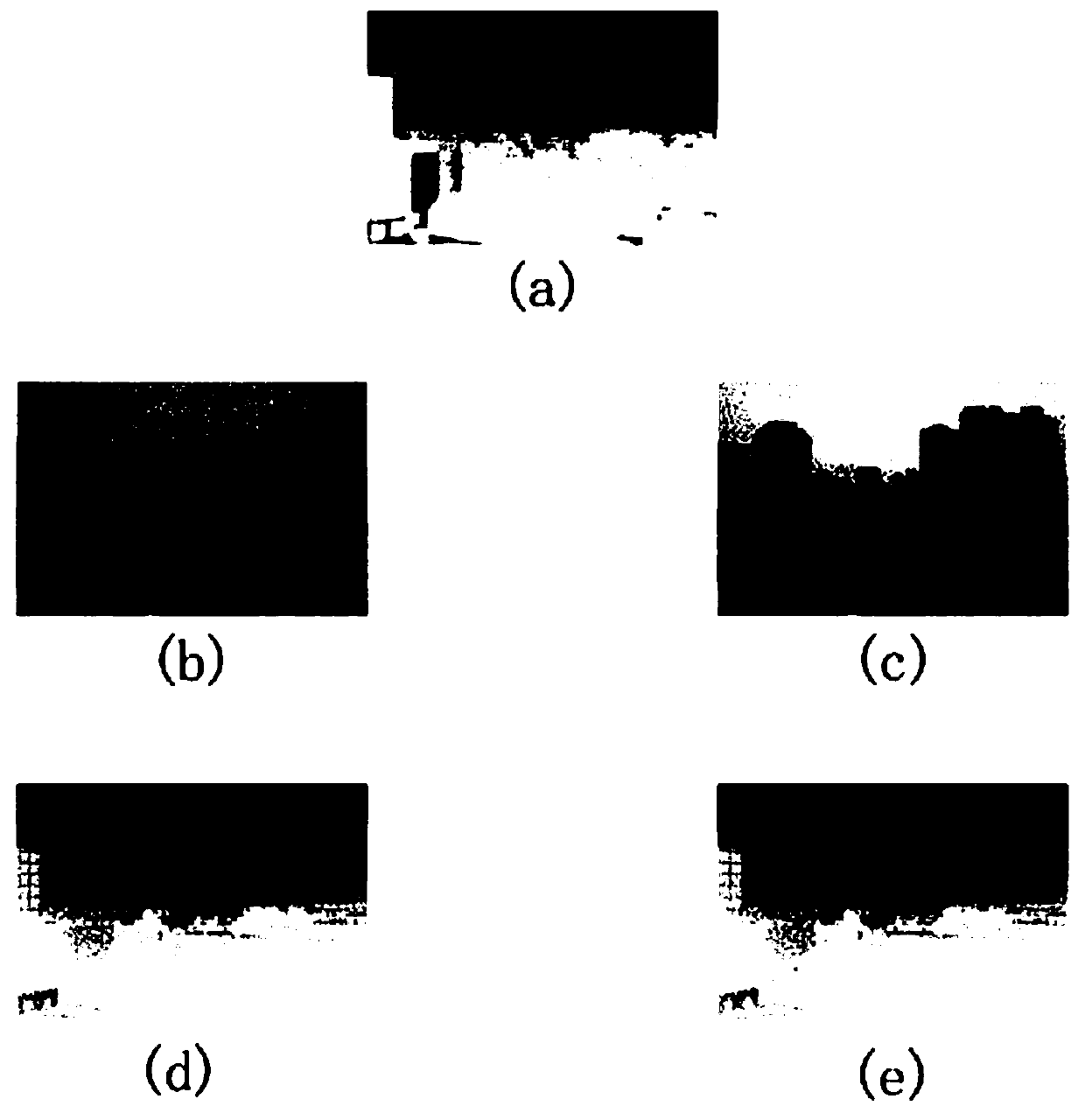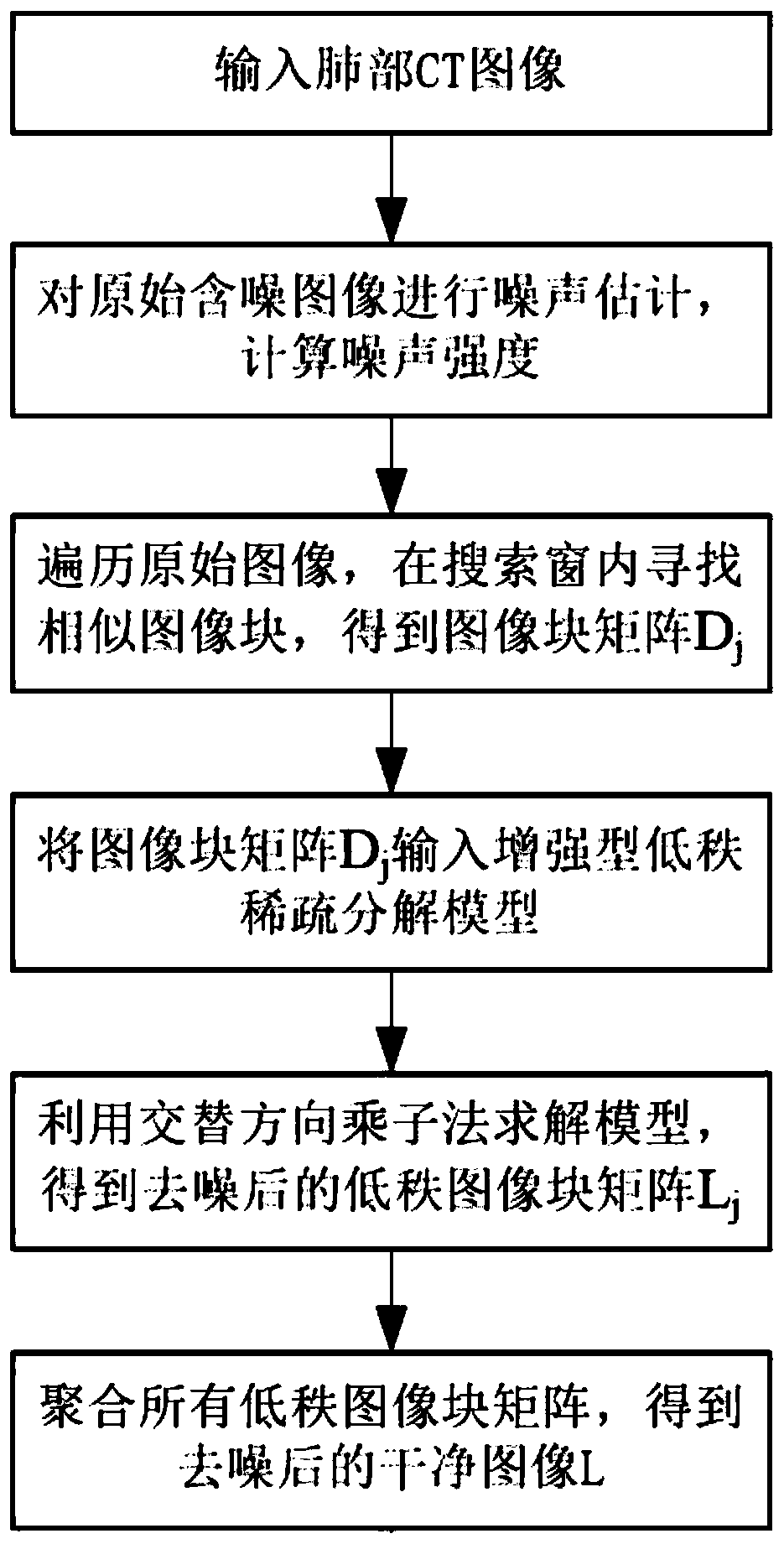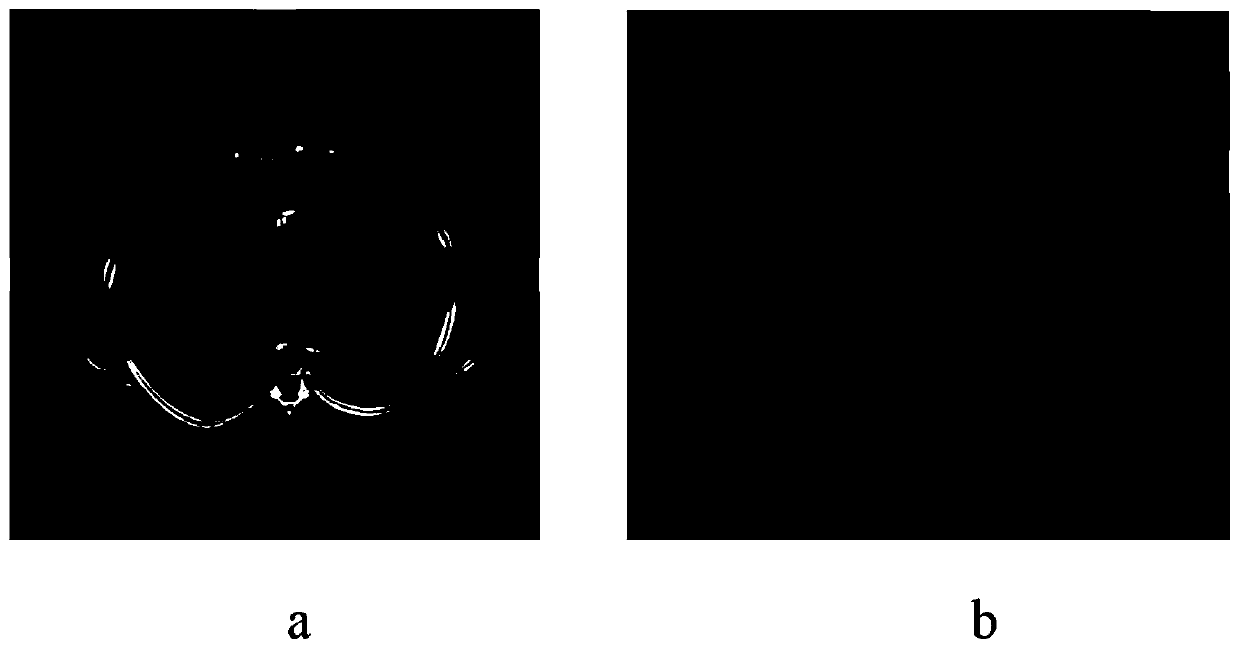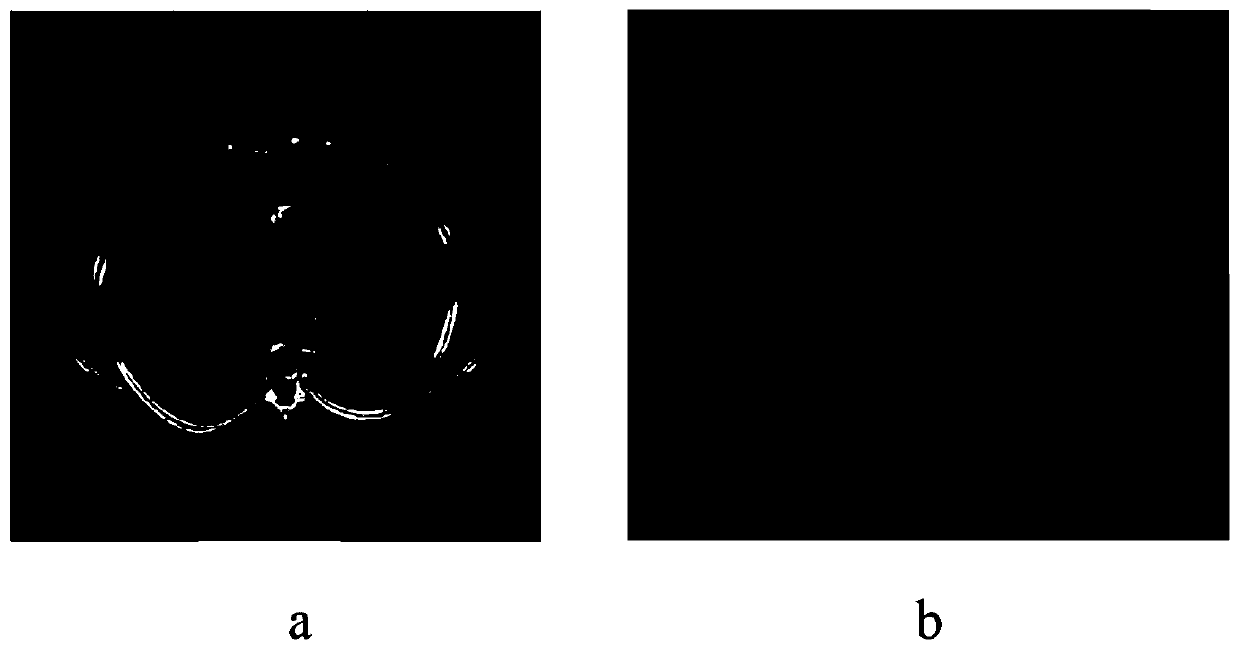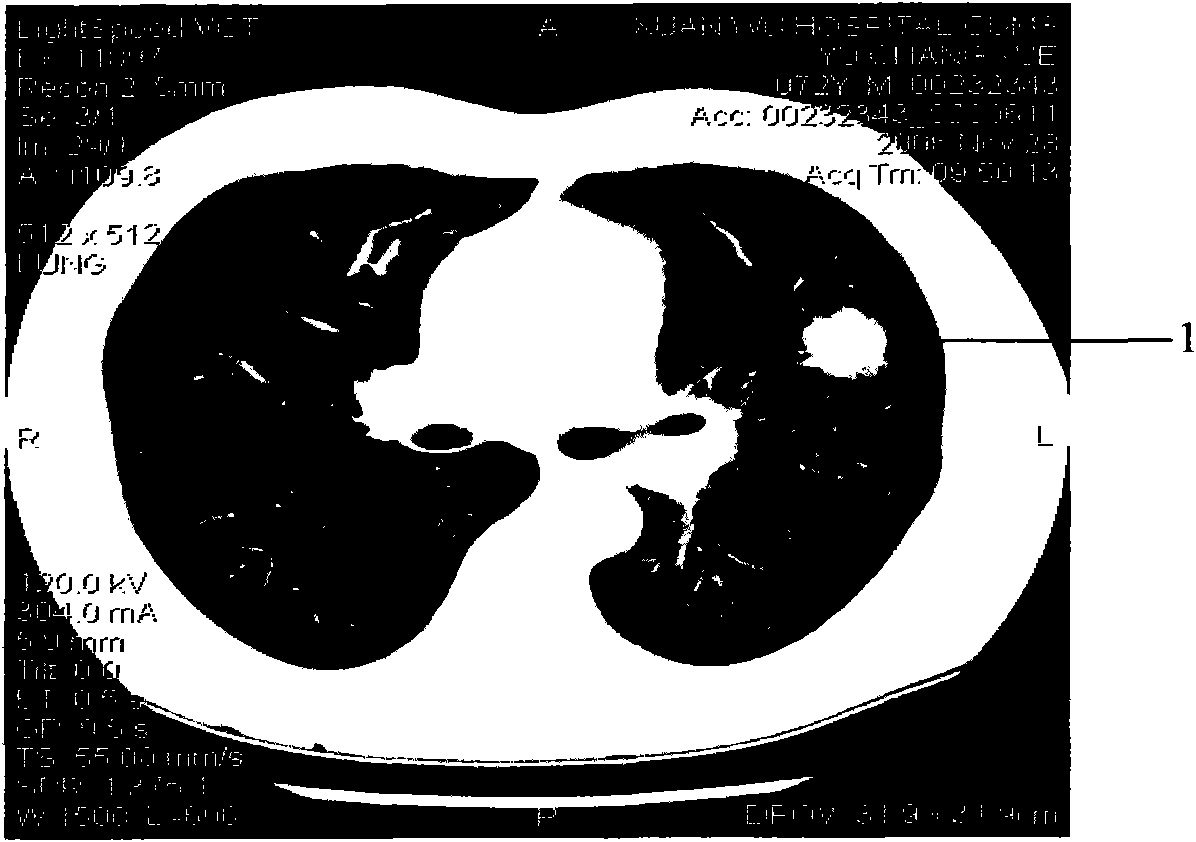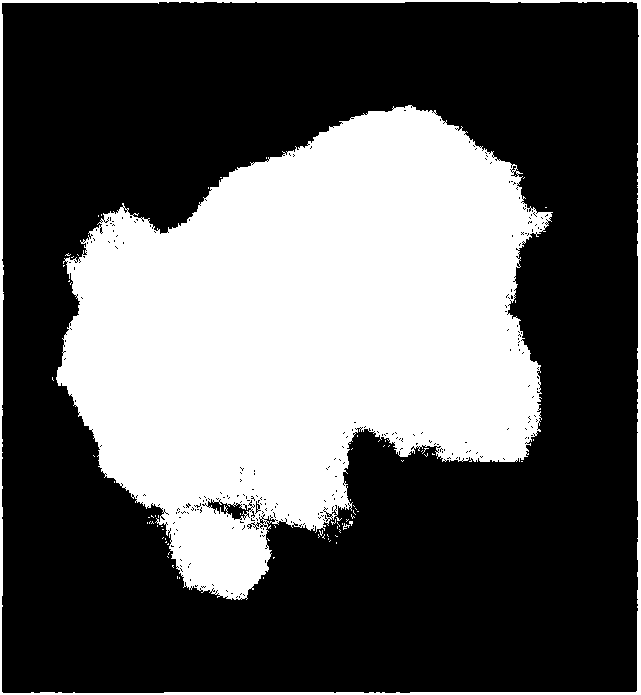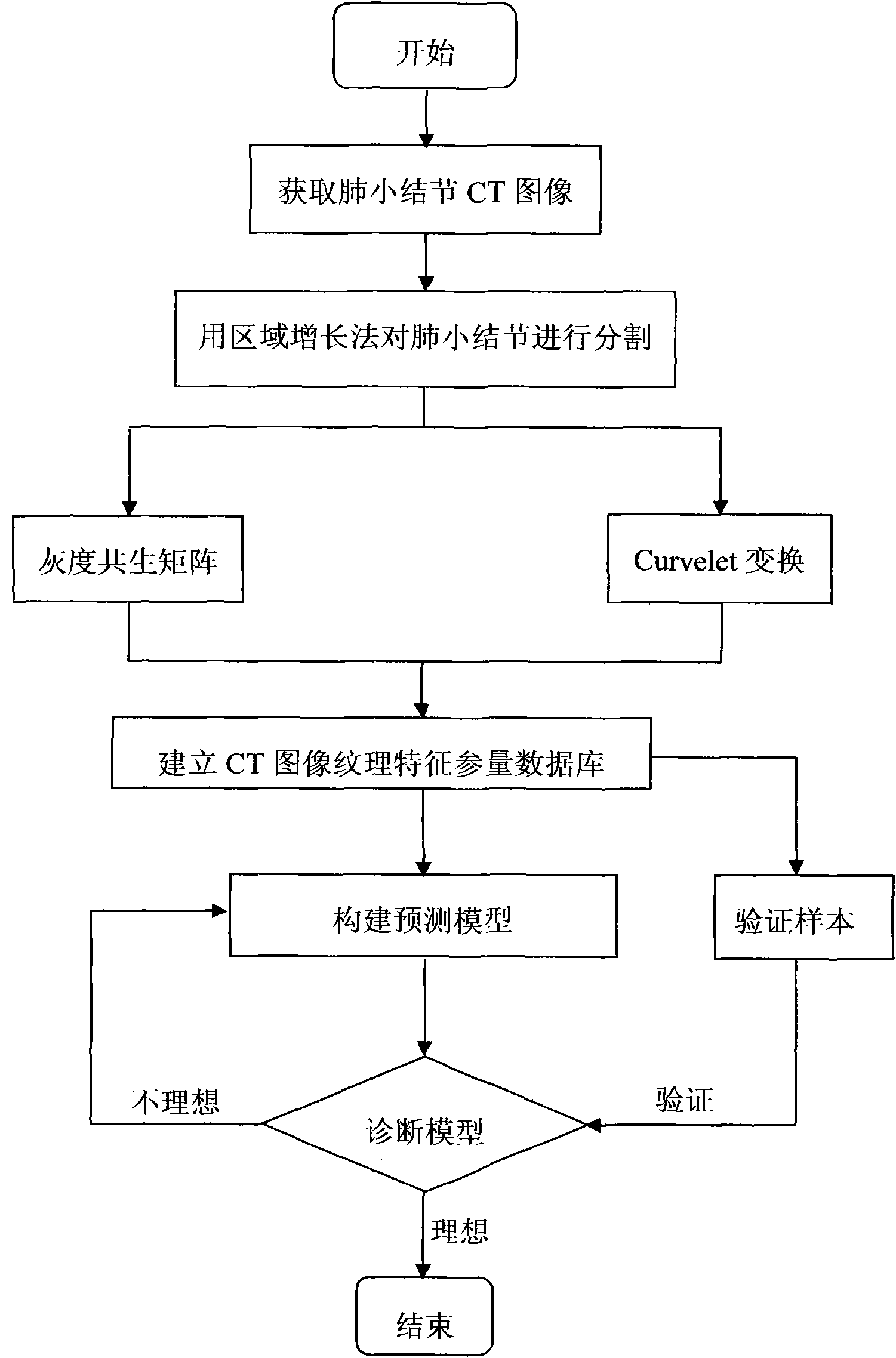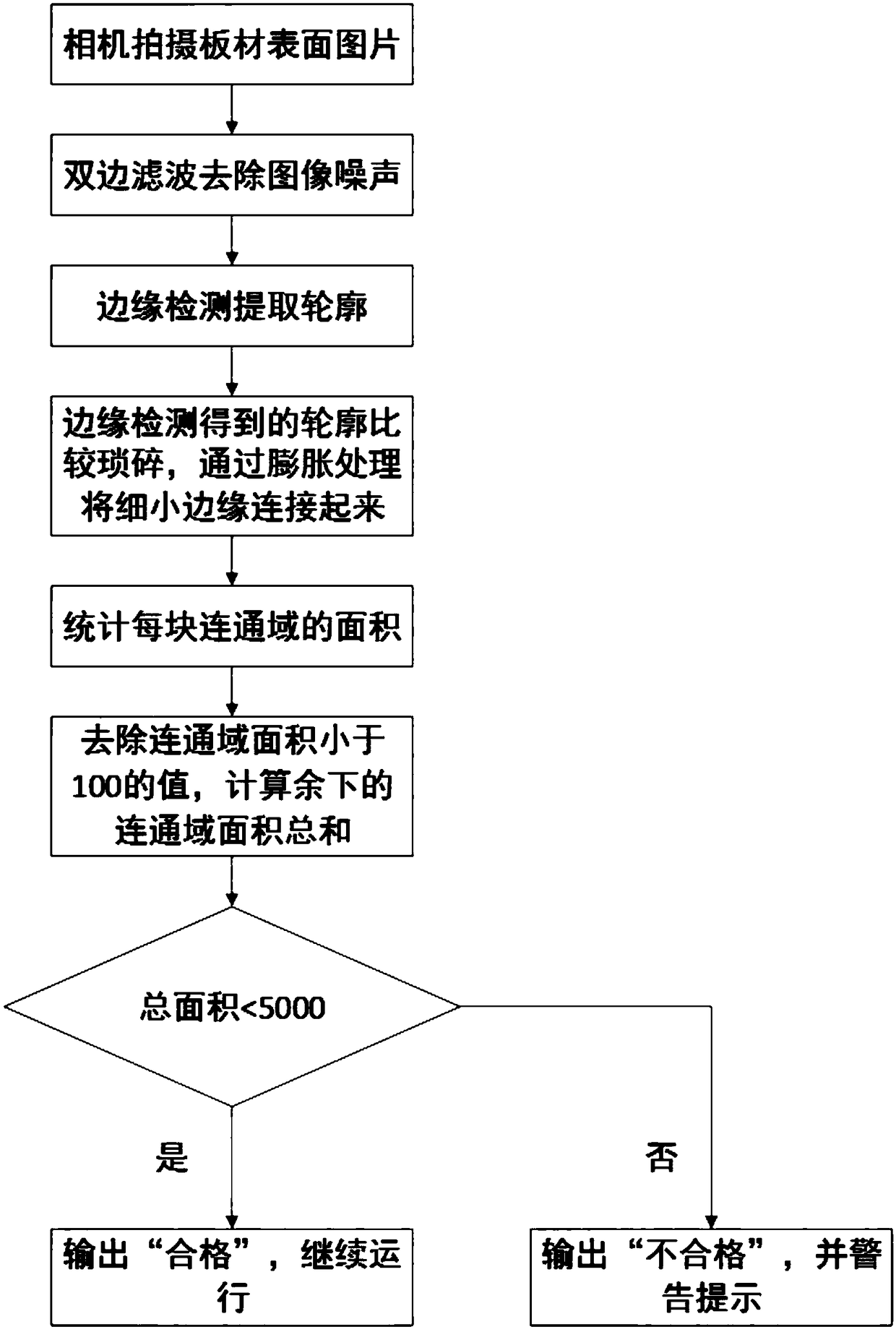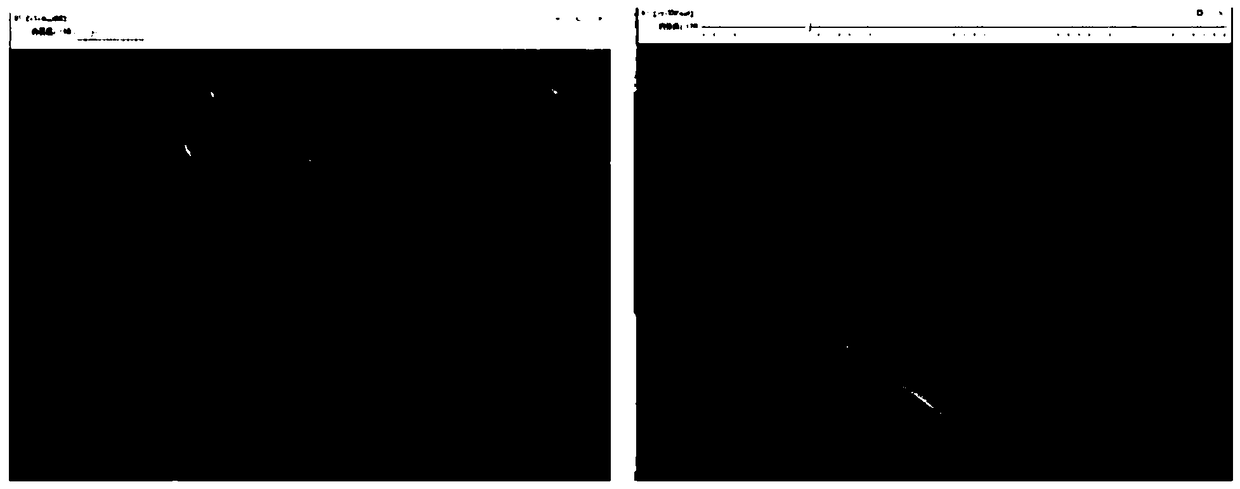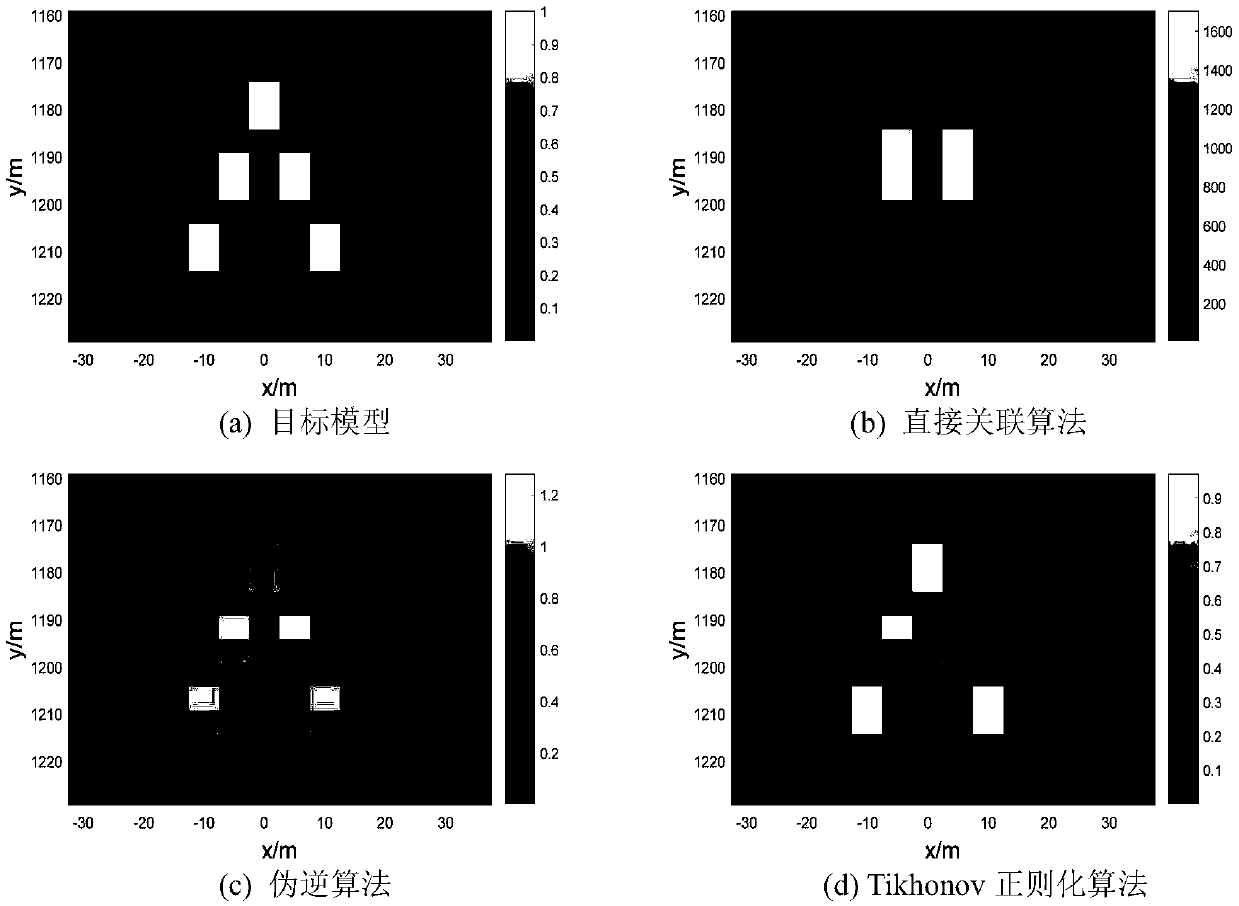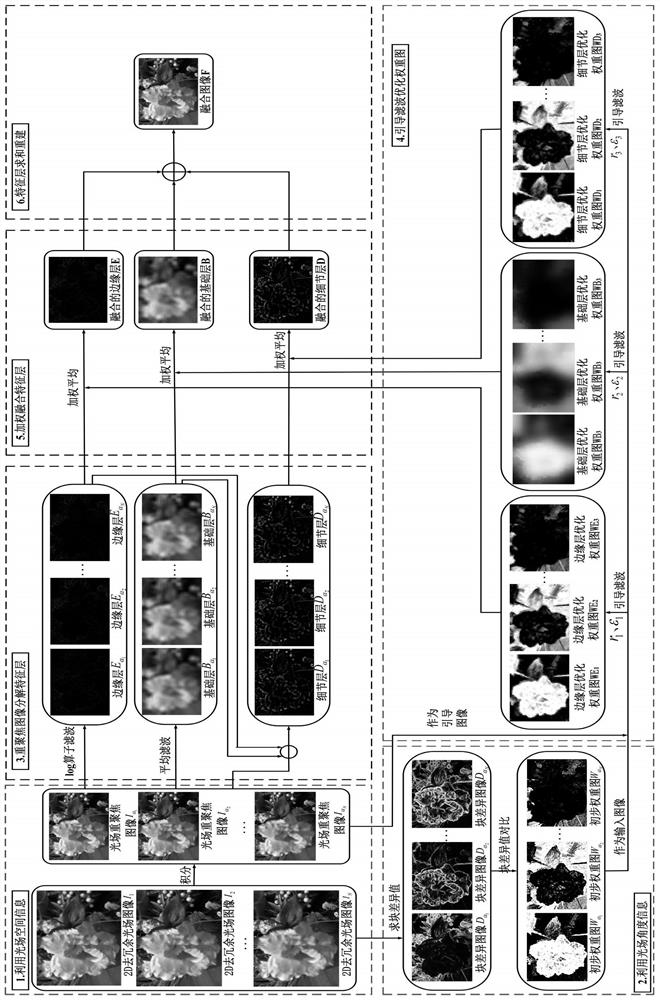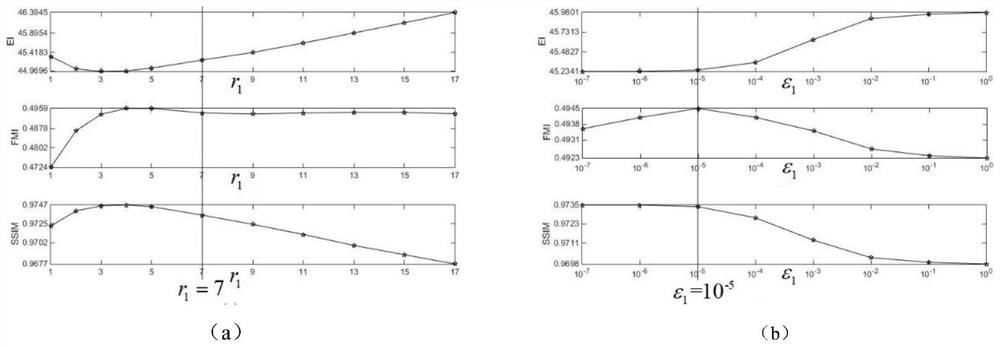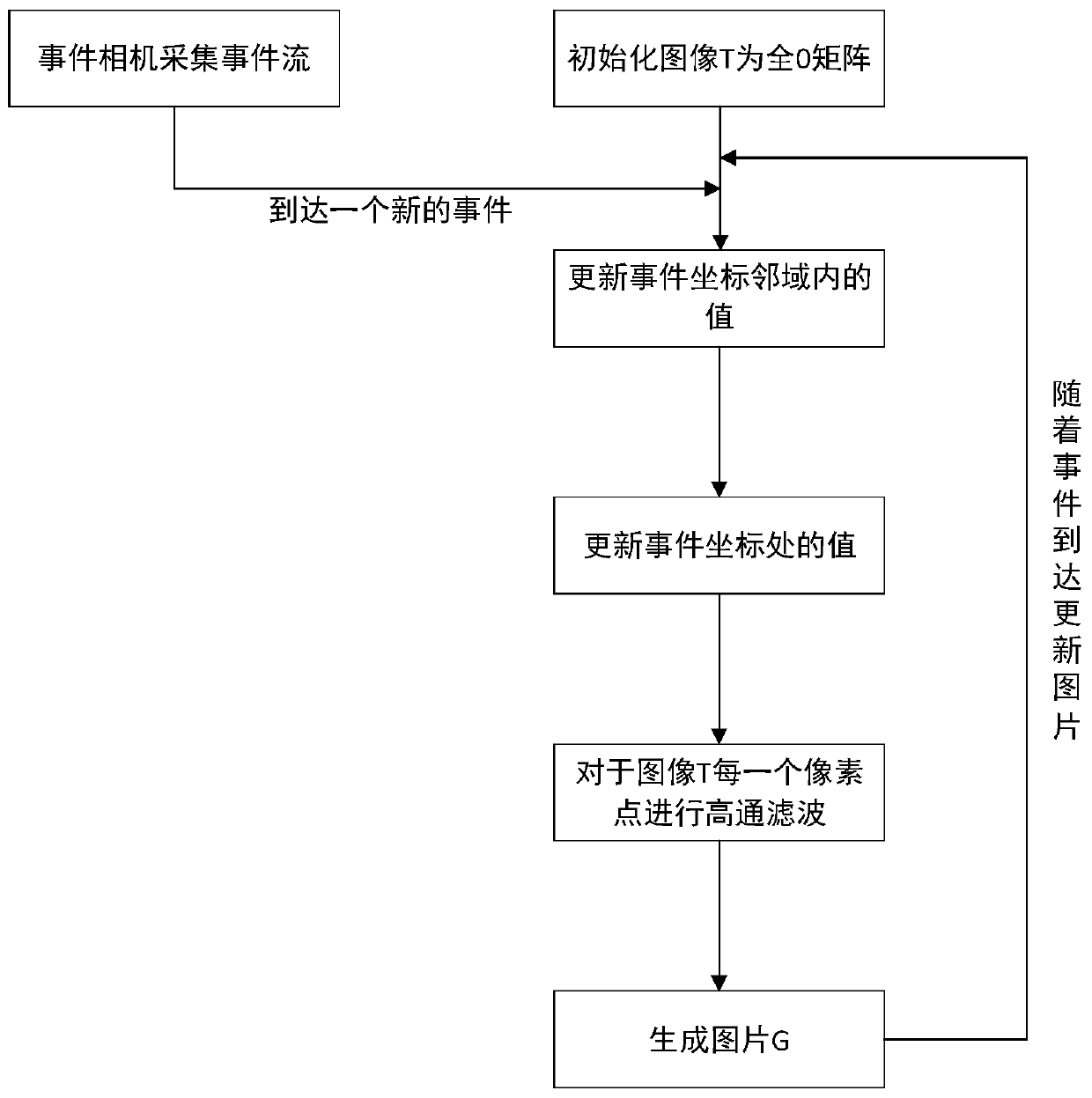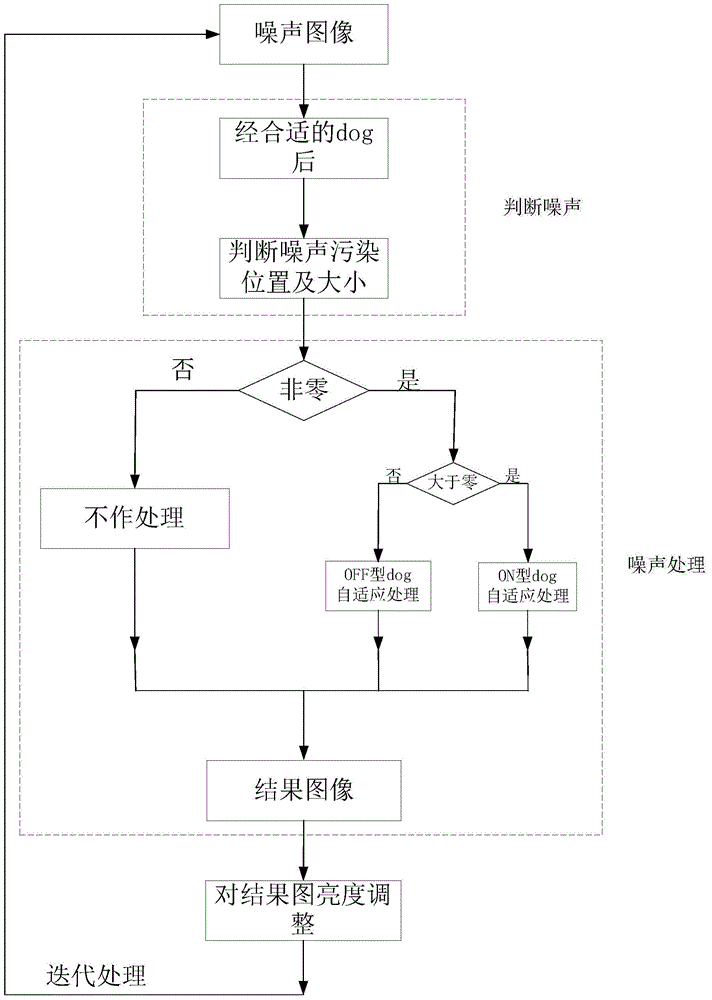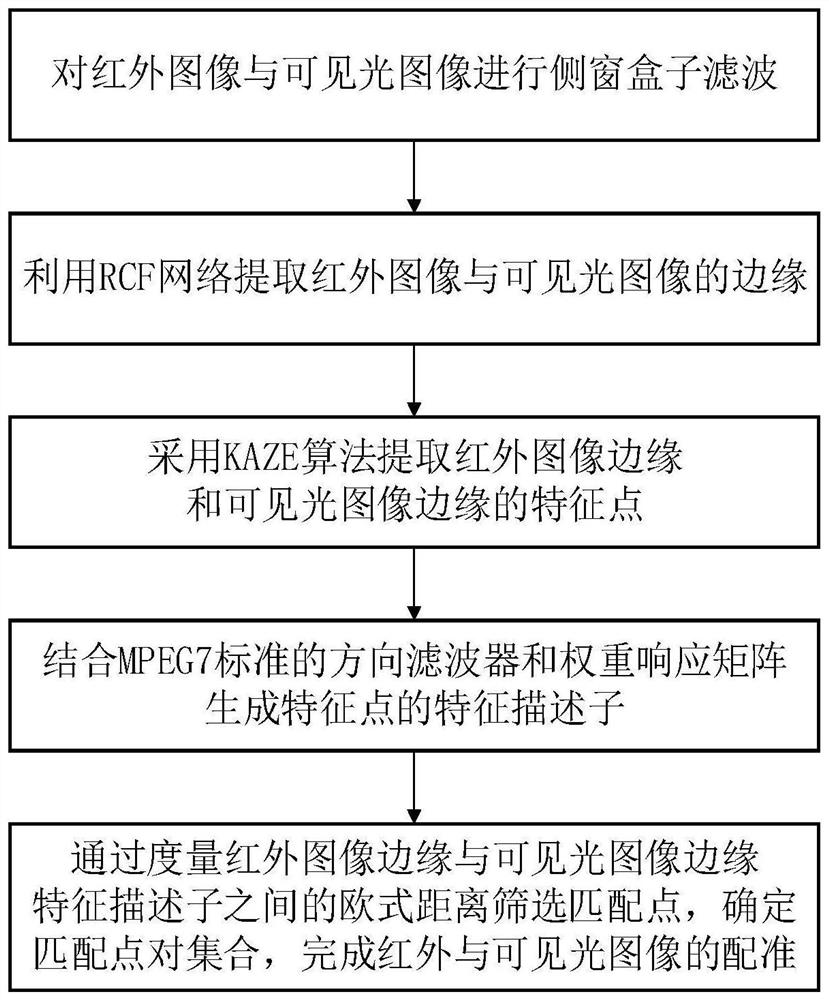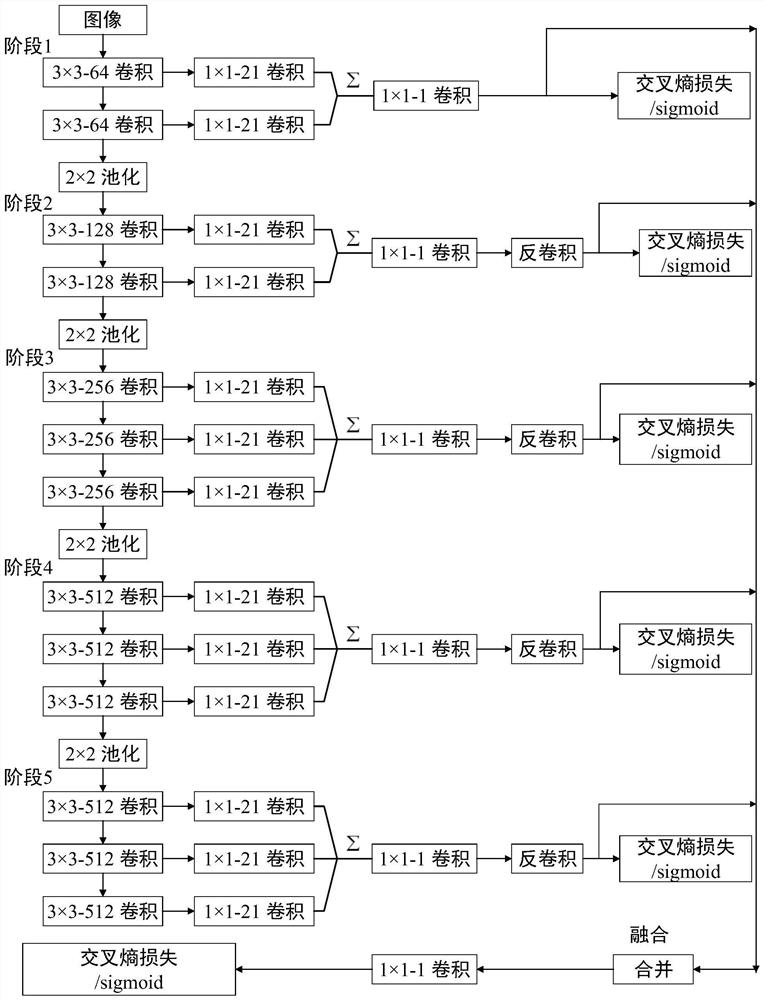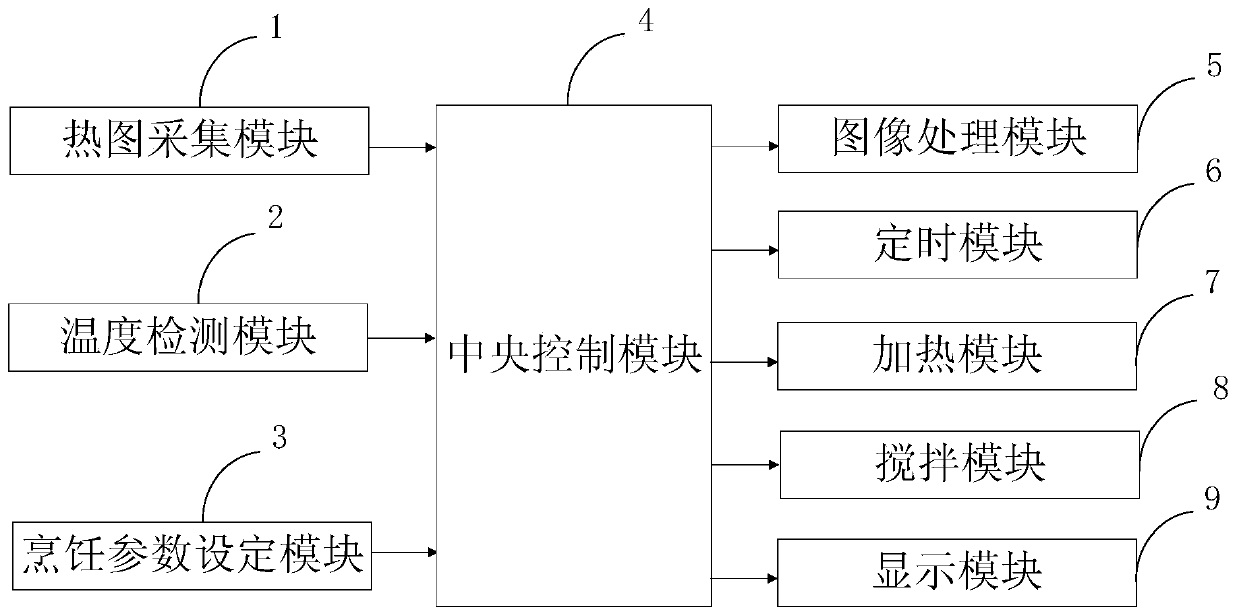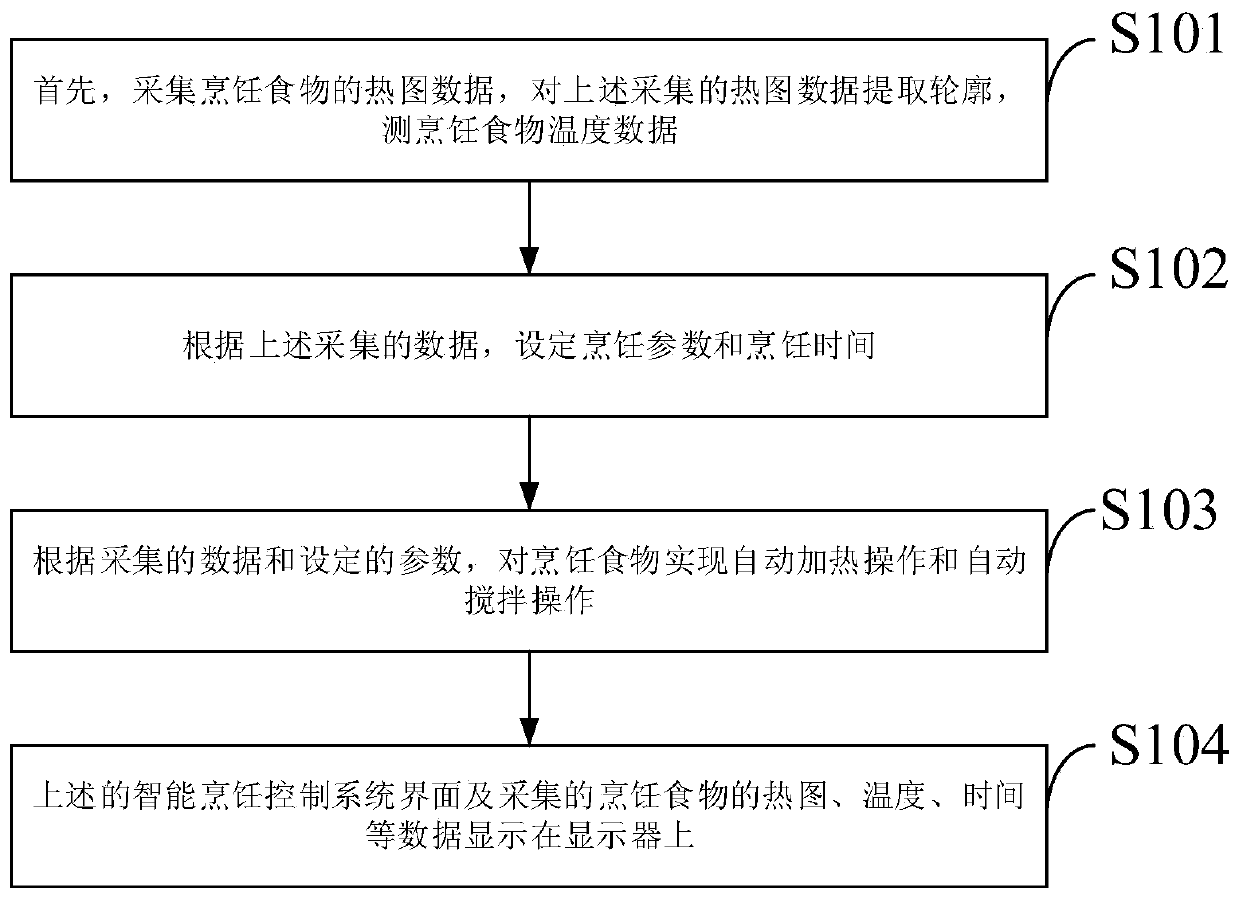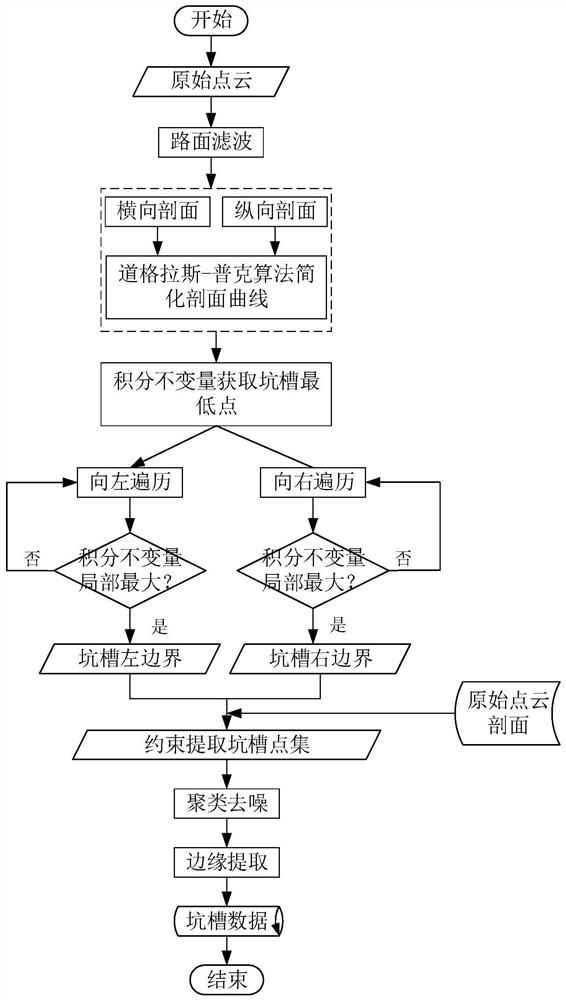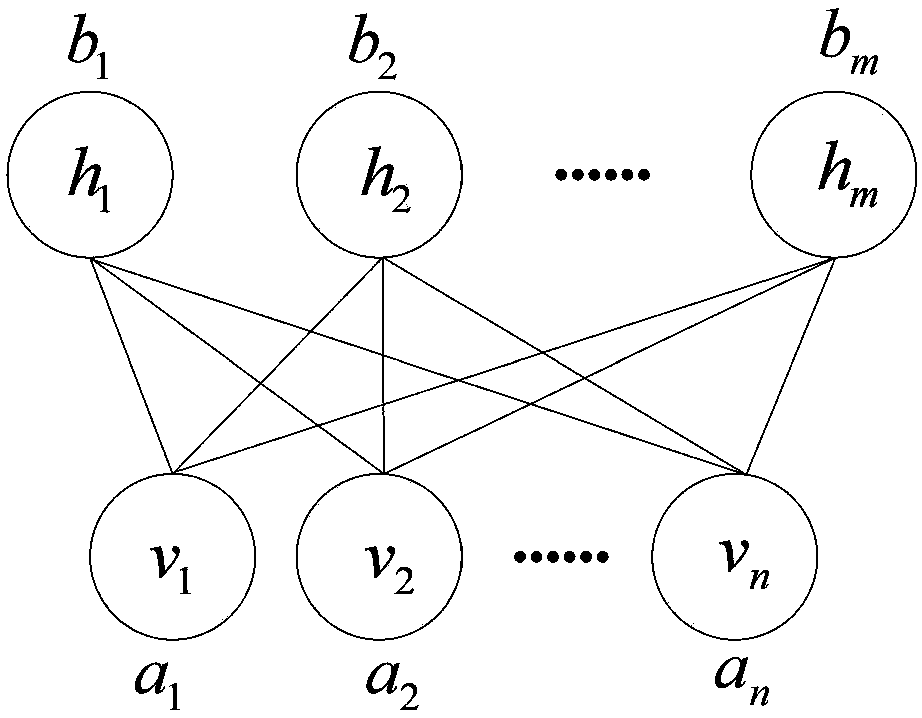Patents
Literature
Hiro is an intelligent assistant for R&D personnel, combined with Patent DNA, to facilitate innovative research.
81results about How to "Preserve edge information" patented technology
Efficacy Topic
Property
Owner
Technical Advancement
Application Domain
Technology Topic
Technology Field Word
Patent Country/Region
Patent Type
Patent Status
Application Year
Inventor
Multiple focussing image fusion method based on block dividing
InactiveCN1402191APreserve edge informationIdeal Fusion ResultsImage analysisImaging qualityImage segmentation
A method based on block division for the fusion of multiple focused images includes dividing the original focused images into blocks with same sizes, finding out the local contrast of each block to reflect the difference between clear focusing area and fuzzy focusing area, dividing an image into clear region and fuzzy region, defining the blocks adjacent to the clear region and fuzzy region as boundary region, expressing said three regions, directly using the clear region as the fused region and using pixel fusion method to fuse the boundary region. Its advantage is high image quality.
Owner:SHANGHAI JIAO TONG UNIV
Computerized Tomography (CT) image uniformization metal artifact correction method based on four-order total-variation shunting
InactiveCN103310432AEfficient removalPreserve edge informationImage enhancementComputerised tomographsMetal ArtifactCorrection method
The invention relates to a Computerized Tomography (CT) image uniformization metal artifact correction method based on four-order total-variation shunting, wherein solving is carried out on the basis of a convexity splitting method to achieve metal artifact correction. The CT image uniformization metal artifact correction method includes the specific steps of collecting data, reconstructing images, dividing metal zones, calculating priori images, obtaining re-projection of the metal zones and the priori images, uniformizing projection data, performing four-order total-variation equation correction, reversely uniformizing the corrected data, reconstructing images again and restoring the image metal zones. The CT image uniformization metal artifact correction method can effectively remove metal artifacts, well maintains structural information of metals and the periphery of the metals, and limits secondary artifact from appearing to the maximum extent and the like.
Owner:XIDIAN UNIV
Bridge crack detection method
ActiveCN110378879AImprove mobilityIncrease flexibilityImage enhancementImage analysisTerrainBridge deck
The invention discloses a bridge crack detection method. Due to the fact that manual marking has certain subjectivity, the pavement crack detection precision depends on experience knowledge of experts, and experience lacks objectivity in quantitative analysis. The method comprises the following steps: 1, collecting images of a detected bridge floor one by one to obtain a bridge floor image set; 2,splicing images; 3, detecting crack; 4, extracting crack parameter. According to the invention, the image acquisition and processing technology replaces human eyes to complete automatic nondestructive detection of the bridge crack, and has very important practical significance for research of the bridge crack detection technology in a complex terrain environment. On one hand, the construction safety is enhanced, and on the other hand, the operation maneuverability and flexibility are improved. According to the invention, fidelity splicing of multiple groups of bridge deck images is realized,the image splicing precision and efficiency are improved, a working foundation is laid for subsequent bridge crack image detection, and a technical reference is provided for image splicing detection in other fields.
Owner:HANGZHOU DIANZI UNIV
Method for self-adaption amalgamation of multi-sensor image based on non-lower sampling profile wave
InactiveCN101303764AAvoid jitter distortionTake advantage ofImage enhancementDecompositionContourlet
The invention discloses a multi-sensor image adaptive fusion method based on non-lower sampling contourlet, which mainly aims at solving the problem that the existing image fusion method easily causes distortion in fused images. The fusion process comprises the steps that: the source images are respectively subject to a non-lower sampling contourlet decomposition to obtain low pass subbands and high-frequency directional subbands of the source images in various scales; the Fibonacci method is applied to the obtained low pass subband to find out the optimal low-frequency subband fusion weight; a fusion is adaptively carried out by utilizing the optimal low-frequency subband fusion weight to obtain the low pass subband of the fused image; a fusion is conducted by hiring the high-frequency fusion formula to fuse the high-frequency directional subbands of the source image in various scales so as to obtain the high-frequency directional subbands of the image in various scales; finally, an NSCT inverse transformation is applied to the low pass subbands and the high-frequency directional subbands of the image to be fused to obtain the fused image. The method has the advantages of smoothness, clarity and rich detailed information of the fused image, and thus can be applied to the pre-treatment of remote sensing images and aerial images.
Owner:探知图灵科技(西安)有限公司
An image denoising method based on multi-scale parallel CNNs
ActiveCN109003240AExtract comprehensiveFavorable image reconstructionImage enhancementImage analysisImage denoisingMean square
The invention discloses an image denoising method based on multi-scale parallel CNNs, comprising five steps: 1, building a multi-scale parallel convolution neural network model, wherein only that convolution layer and the activation lay are included, and residual learning is added at the same time; 2, setting training parameter of a multi-scale parallel convolution neural network model; 3, selecting a training set and cutting and flipping the selected training image to enhance the number of the training sets; 4, selecting the mean square error as a loss function and train a multi-scale parallel convolution neural network model with a minimization loss function to obtain an image denoising model; 5, inputting the noise image of arbitrary size to the image denoising model, and outputting thedenoised clean image. The invention can preserve the edge information and the detail information of the image as much as possible while denoising, can improve the structural similarity of the image,and can obtain a high-quality denoised image.
Owner:ANHUI UNIV OF SCI & TECH
An image depth estimation system and method based on hole convolution and semi-supervised learning
PendingCN109741383AReduce the amount of parametersFast Image Depth Estimation MethodImage analysisCharacter and pattern recognitionSpatial perceptionEstimation methods
The invention discloses an image depth estimation system and method based on cavity convolution and semi-supervised learning, and solves the problem of estimating scene depth from a single image. According to the invention, a conventional encoder is adopted; the network structure model of the decoder is improved, and a cavity convolution module is added between an encoder module and a decoder module. The image depth estimation method specifically comprises the steps of obtaining a training set and a test set; using a semi-supervised learning strategy to train a model; testing the precision ofthe model by using a test set; estimating image depth using a model. According to the method, the spatial perception capability of the network is improved by using hole convolution, a semi-supervisedlearning strategy is adopted, and the output depth map is optimized through the depth map smoothing error. The method has the characteristics of small parameter model, high prediction precision and complete detail information. The method is applied to the fields of image three-dimensional reconstruction and automatic driving.
Owner:XIDIAN UNIV
Construction method and application of three-dimensional MRI image denoising model based on Wasserstein generative adversarial network
ActiveCN110097512AImprove denoising effectQuality improvementImage enhancementImage analysisPattern recognitionGenerative adversarial network
The invention discloses a construction method and application of a three-dimensional MRI image denoising model based on a Wasserstein generative adversarial network. According to the invention, a Wasserstein generative adversarial network is used as a basic model to process an MRI noise image; large-scale data is used for training, a model can automatically learn potential association between a noise image and a non-noise image from the data, confrontation loss, perception loss and MSE loss are introduced into construction of a training model loss function, and the constructed model has a gooddenoising effect on a three-dimensional MRI image.
Owner:SICHUAN UNIV
Cement notch groove pavement image noise reduction enhancement and crack feature extraction method
ActiveCN108460744AImprove claritySmall distortionImage enhancementImage analysisImage noise reductionRoad surface
The present invention discloses a cement notch groove pavement image noise reduction enhancement and crack feature extraction method aiming at the problems that the pavement contrast is too low causedby external factors and the payment spots and notch groove autointerference caused by pavement materials. The method comprises the following steps of: employing an improved local adaptive contrast enhancement algorithm to enhance image contrast after graying processing of an original cement pavement image; employing translation invariance Shearlet transform denoising algorithm of an improved P-Mmodel to remove speckle noise caused by pavement materials; employing a cement notch groove pavement image smoothing model established based on an unidirectional total variation UTV model to the imageafter denoising to remove a pavement notch groove influencing feature extraction; and combining a connected domain mark method, a projection method and a rectangular frame method to extract a crack type determination method and a crack feature calculation method to achieve digital description of crack features. The cement notch groove pavement image noise reduction enhancement and crack feature extraction method is systematic and comprehensive, small in calculated amount and easy to apply.
Owner:WUHAN UNIV OF TECH
Image enhancement method
ActiveCN104376542AImprove visual effectsReduce magnificationImage enhancementImage enhancementComputer science
The embodiment of the invention discloses an image enhancement method. The image enhancement method comprises the steps that denoising treatment is conducted on an original image, so that a first image is obtained; contrast conversion is conducted on the first image, so that a second image is obtained; preset image operation is conducted on the original image, the first image and the second image, so that a target image containing the edge information of the original image is obtained. By the adoption of the image enhancement method, when contrast conversion is conducted on the first image which is obtained after denoising treatment, the amplification degree of noisy points in the original image can be reduced, the target image can contain the edge information of the original image through image calculation, and therefore the sense of reality of an enhanced image can be kept.
Owner:SHENZHEN TRANSSION HLDG CO LTD
Method and device for automatically restoring, measuring and classifying steel dimple images
InactiveCN101782526AAchieve separationPreserve edge informationImage enhancementImage analysisNoise removalGray level
The invention relates to a method and a device for automatically restoring, measuring and classifying steel dimple images. The device comprises an image acquiring system, an image pretreating part, an image restoring part, an image analyzing part, etc. The image pretreating part is used for performing median filter noise removal and gray level correction on original images acquired by the image acquiring system; the image restoring part is used for performing binary segmentation by using an adaptive fuzzy threshold valve method; boundary deletion and holes in the obtained binary images are processed respectively by using an ultra-erosion and layer-by-layer expansion method and an improved scanning line seed filling algorithm; the image analyzing part is used for performing region calibration on the processed images and setting the dimple diameter as the diameter of the minimum circumcircle of the dimple; and a random dimple region area algorithm is used to measure the dimple area so as to obtain the dimple diameter. After measurement, the measured classification results are output. The invention has the advantages of accuracy, efficiency and convenience, and can be popularized and applied in fracture measurement, analysis and classification with complex backgrounds and shapes in the material filed.
Owner:JIANGSU UNIV
DR image denoising method based on wavelet transformation and system thereof
InactiveCN102663695APreserve edge informationImprove signal-to-noise ratioImage enhancementImage denoisingSignal-to-noise ratio (imaging)
The invention discloses a DR image denoising method based on wavelet transformation. The method comprises the following steps: (1) reading image data to be processed; (2) determining wavelet and a number of layers of wavelet decomposition, and calculating a wavelet decomposition coefficient containing a noise signal; (3) choosing a threshold for each layer of coefficient, using an improved soft threshold to process an image; (4) carrying out wavelet reconstruction to obtain a first layer of A1, H1, V1 and D1; (5) carrying out classic hard threshold filtering on the first layer of H1, V1 and D1; and (6) using a coefficient after filtering to carry out reconstruction again to obtain a final image. A proposed method by the invention is more flexible, shortcomings of a hard threshold function and a soft threshold function can be overcome through a smoothing function and hard threshold filtering, noise can be removed, edge information of the image can be retained well, a signal-to-noise ratio of image is improved, and the method is a good processing scheme.
Owner:CHONGQING UNIV
Multi-view video segmentation method based on graph cut
InactiveCN105957078AImprove robustnessIncrease speedImage enhancementImage analysisParallaxViewpoints
The present invention relates to a multi-view video image segmentation method based on graph cut and view correlation, which belongs to the field of image processing. With the object to overcome the shortcomings seen in a prior method such as poor robustness, slow execution rate and unsatisfactory segmentation effect, a multi-view video image segmentation method is provided which comprises mainly two parts. An improved Grabcut algorithm is used to segment any single viewpoint image that is given. The introduced smooth item makes it easier to extract a target from the background and the measure to protect edge of the target ensures that the edge of an obtained target is still a smooth one. On the basis of the obtained target of viewpoint image, other targets of viewpoint images are extracted by view disparity matching and a morphological processing method. The algorithm adopts a segmentation method featuring stereoscopic targets matching and tracking in a super-pixel domain, improves the Slic super-pixel generation algorithm and redefines the energy function, which effectively raises the segmentation efficiency under the premise of ensuring a segmentation result with high accuracy and promises the algorithm for wide applications.
Owner:ZHEJIANG WANLI UNIV
Deep image post-processing method
ActiveCN102542541APreserve edge informationKeep validImage enhancementImage post processingComputer science
The invention discloses a deep image post-processing method, which comprises the following steps of: (1) based on to-be-processed left and right view point three-dimensional images and corresponding left and right view point deep images, taking one view point image as a main view point and the other view point image as an auxiliary view point, and detecting reliable points and unreliable points of the main view point deep image; (2) determining filtering size range for processing the main view point deep image according to the basic size of a filtering window; and (3) carrying out multi-size filtering on the main view point deep image by utilizing the main view point image and the reliability of each pixel in the main view point deep image, retaining reliable points, and gradually correcting the unreliable points. According to the invention, aiming at the deep image generated by a three-dimensional matching algorithm, the unreliable points in the shielding region and low-texture region in the deep image can be quickly and effectively corrected, the object edges can be effectively retained, and the accurate and smooth deep image is obtained.
Owner:万维显示科技(深圳)有限公司
Weighted sparse-based mixed denoising method
ActiveCN106204482AReduce workloadEffective denoisingImage enhancementImage analysisPattern recognitionMixed noise
The invention discloses a weighted sparse-based mixed denoising method. According to the method, a calculus of variations is added on the basis of a weighted sparse representation non-local training dictionary to match non-local similar blocks, and a dual method is used to solve a mixed denoised image, so that edge information of the image can be better stored. The method has a denoising effect superior to that of the existing algorithms, has a high peak signal to noise ratio and a high image feature similarity, has a good inhibiting effect for mixed noises, particularly can well store the image information of the image, and has certain improvement for the preservation of image features.
Owner:GUILIN UNIV OF ELECTRONIC TECH
Method for detecting cracks in bridge image
ActiveCN110390669AImprove construction safetyImprove operational mobilityImage enhancementImage analysisPattern recognitionSignal-to-noise ratio (imaging)
The invention discloses a method for detecting cracks in a bridge image. Due to the fact that manual marking has certain subjectivity, detection precision depends on experience knowledge of experts, and experience lacks objectivity in quantitative analysis. The method comprises the following steps: 1, detecting the position of a crack in a bridge floor image, and completely extracting the morphological characteristics of the crack; 2, extracting real parameters of cracks in the image. According to the invention, an image processing technology is used to replace human eyes to complete automaticnondestructive detection of bridge cracks. Aiming at the unique spatial ductility and gray distinguishability of bridge cracks, the improved median filtering algorithm is provided, according to the characteristics of crack edge similar gray linear distribution, on the basis of original median filtering, the thought of the similar gray scale extension direction is introduced, interference of bridge floor image composite noise can be restrained more effectively, the signal-to-noise ratio of the image is increased, the continuity of detail information of the crack edge is kept, and the reliability of fidelity filtering of a target crack is improved.
Owner:HANGZHOU DIANZI UNIV
High-precision rapid graph detection and identification method
PendingCN112819772AReduce noiseImprove image qualityImage enhancementImage analysisPattern recognitionGraphics
The invention discloses a high-precision rapid graph detection and identification method, which is characterized in that the high-precision rapid graph detection and identification method adopts machine vision to carry out seven steps of image shooting acquisition, image enhancement preprocessing, edge detection, key point selection, curve fitting, attribute parameter operation and graph reconstruction on a workpiece graph. The method is suitable for workpiece graph detection, recognition and reconstruction in the field of intelligent manufacturing.
Owner:南京挥戈智能科技有限公司
Polarization difference and light intensity image multi-scale fusion method based on edge information enhancement
ActiveCN109636766APreserve edge informationPolarization characteristics show remarkableImage enhancementImage analysisInformation analysisDecomposition
The invention provides a polarization difference and light intensity image multi-scale fusion method based on edge information enhancement. The method comprises: obtaining a polarization difference image and a light intensity image through a minimum mutual information polarization difference imaging method and polarization information analysis; secondly, denoising the light intensity image by adopting a three-dimensional block matching filtering algorithm, and enhancing the light intensity image by adopting a guide filtering algorithm; affine transformation and three-dimensional block matchingfiltering algorithm denoising are carried out on the polarization difference image; decomposing the light intensity image and the polarization difference image into a high-frequency coefficient and alow-frequency coefficient by adopting double-tree complex wavelet transform; the high-frequency coefficient images in different directions on different decomposition layers in the high-frequency coefficients adopt a fusion rule based on edge detection, and the low-frequency coefficient images in different directions in the low-frequency coefficients adopt a fusion rule based on regional varianceand variance matching degree; And obtaining a fused image through even complex wavelet inverse transformation.
Owner:NANJING UNIV OF SCI & TECH
Adaptive SUSAN diffusion and denoising method of medical ultrasonic image
InactiveCN102663692AOvercome the shortcomings of inaccurate image edge detectionOvercome the disadvantage of inaccurate edge detectionImage enhancementImage denoisingRadiology
The invention relates to an adaptive SUSAN diffusion and denoising method of a medical ultrasonic image. The method comprises the following steps; (1), adaptively selecting an image all-speckle and noise area; (2), carrying out image edge detection based on an SUSAN algorithm; and (3), carrying out medical ultrasonic image denoising based on SUAN diffusion. Compared with the prior art, the technology employed in the invention enables the method to have the following characteristics: the workload of manually setting of threshold parameters can be reduced; robustness of the method can be improved; and the method is suitable for popularization and application and the like.
Owner:SHANTOU UNIV
Image defogging method based on dark channel and bright channel priori
ActiveCN111292258AIncrease contrastReduce time complexityImage enhancementPhysical modelComputational physics
The invention discloses an image defogging method based on dark channel and bright channel priori. The method comprises the following steps of establishing an atmospheric light scattering model basedon the physical model of an degraded image; taking an atmospheric light value as a global variable; performing prior estimation on an atmospheric light scattering model in combination with a dark channel and a bright channel to obtain an atmospheric light value; obtaining coarse transmissivity according to the atmospheric light scattering model and the obtained atmospheric light value to acquire more accurate data; then, using the gray level image of the original image as a guide image to carry out guide filtering to refine the transmissivity, thereby reserving the edge information of the depth of field, while reducing the time complexity of the algorithm, finally, acquiring the transmissivity through self-adaptive adjustment according to the self-adaptive transmissivity compensation function, sky region segmentation is not needed, the color distortion problem of a bright area is avoided, and the self-adaptability of the algorithm is improved. The problem of distortion of the color ofthe bright area during foggy image recovery is effectively solved, the defogging effect is natural, and the contrast ratio of the image is remarkably improved.
Owner:CHANGAN UNIV
Enhanced low-rank sparse decomposition model medical CT image denoising method
ActiveCN110992292AFunction and effectImprove processing efficiencyImage enhancementImage analysisImage denoisingAlgorithm
The invention relates to an enhanced low-rank sparse decomposition model medical CT image denoising method. The method comprises the following steps: determining the number and the size of similar blocks in a search window and an image block matrix and the maximum number of iterations during iterative solution according to a calculated noise intensity estimated value, traversing an original image,performing non-local similar block matching, and dividing the original image into a plurality of image block matrixes consisting of non-local similar blocks; carrying out low-rank matrix estimation on the medical CT original image D belonging to Rm*n by adopting a weighted Schatten p norm, and adding a joint constraint L1-2TV regularization item to construct an enhanced low-rank sparse decomposition model; sequentially inputting the image block matrixes into the model, and performing iterative solution by using an alternating direction multiplier method to obtain low-rank matrixes of the corresponding image block matrixes; and aggregating the low-rank matrixes corresponding to all the image block matrixes to obtain a denoised clean image. According to the method, more mixed noise can be separated as much as possible so as to obtain a better medical CT image denoising effect.
Owner:HEBEI UNIV OF TECH
Method for extracting multi-dimensional texture of nodi from medical images
ActiveCN101853493AComprehensive Texture Extraction MethodsNovel texture extraction methodImage enhancementTexture extractionMulti dimensional
The invention relates to a method for extracting multi-dimensional texture of nodi from medical images. The images are segmented by using a region growing method, content texture characteristic parameters of nodi are extracted by adopting a gray level co-occurrence matrix method, and edge texture characteristic parameters of the nodi are extracted by adopting a Curvelet conversion method. The method can enhance the edge information of the nodi and maintain the edge information thereof better so as to improve the accuracy of judging the properties of the nodi.
Owner:北京中康博生物科技有限公司
Vision-based plate surface detecting method
ActiveCN108827181AReduce manufacturing costReduce misjudgmentUsing optical meansProduct-determining stepVision based
The invention discloses a vision-based plate surface detecting method comprising an extrusion forming image acquisition step, an image preprocessing step, a Canny edge detecting step, an expansion processing step, and a connected domain area qualified product determining step. The vision-based plate surface detecting method reduces enterprise production cost, improves production efficiency, and reduces misjudgment.
Owner:SHANDONG IND TECH RES INST OF ZHEJIANG UNIV
Total variation regularization correlated imaging method based on nonnegative constrain on target scattering coefficient
ActiveCN109557540AEnhanced Region SmoothnessImprove imaging effectRadio wave reradiation/reflectionMultiplier methodNon negativity
The invention belongs to the technical field of radar imaging and discloses a total variation regularization correlated imaging method based on non-negative constraint on a target scattering coefficient. Firstly, a radar correlated imaging model is established according to a geometric relation of correlated imaging. The amplitude and phase position of the target scattering coefficient are split and a total variation regularization function is established under the condition of nonnegative constrain. The regularization function is optimally solved by using an alternating direction multiplier method. The total variation regularization correlated imaging method considers information of the amplitude and phase position of the scattering coefficient separately, makes full use of the non-negativity of the amplitude of the scattering coefficient to reestablish a radar target scene, thus the establishment of the model is more close to an actual situation, which is beneficial to get a better imaging result. Compared with a commonly used correlated imaging algorithm, the method of the invention can better reserve information of edges between areas of reconstructed image and strengthen the smoothness of the areas.
Owner:XIDIAN UNIV
Light field camera full-focus image fusion algorithm for guiding angle information through space information
ActiveCN111784620AConfidencePreserve edge informationImage enhancementImage analysisPattern recognitionComputer graphics (images)
The invention belongs to the field of light field full-focus image fusion. According to a traditional image fusion algorithm based on guided filtering, only spatial information of an image is utilized; the method is applied to light field full-focus image fusion. The reasonable utilization of the angle information can effectively improve the image fusion precision; based on this, the invention provides a light field camera full-focus image fusion algorithm of spatial information guide angle information. According to the algorithm, a preliminary fusion weight graph is obtained based on angle information of a 4D light field; the preliminary fusion weight graph is taken as a guided image; spatial information obtained by coordinate transformation and integration of the 4D light field is used as a guide image to complete guide filtering; experiments demonstrate the effectiveness of the algorithm provided by the invention: a quantitative evaluation result shows that on the premise of not sacrificing image information richness and perception definition, a fused image obtained by the algorithm provided by the invention is higher in quality under performance evaluation indexes based on features and structural similarity.
Owner:TAIYUAN UNIVERSITY OF SCIENCE AND TECHNOLOGY
Mapping method of event camera not influenced by speed
ActiveCN110428477APreserve edge informationClear edgesImage enhancementTexturing/coloringImaging processingImaging algorithm
The invention provides a mapping method of an event camera not influenced by speed. The problem that a traditional image algorithm cannot be applied to an event camera due to the fact that data generated by the event camera are asynchronous event streams rather than traditional image frame streams is solved. The method comprises steps of generating an image frame stream with constant brightness and high contrast from an event stream by a method of keeping the difference between the values of the pixel points on the contour and the values of the surrounding pixel points in the image constant; updating the speed-invariant image once every event arrives, setting the brightness of the event position on the image as a maximum constant value, reducing the brightness values of surrounding field points, keeping the edge contrast constant, and removing the trailing effect by using a high-pass filter. The image generated by the method is clear in edge and constant in brightness contrast, and subsequent image processing is facilitated.
Owner:WUHAN UNIV
Image denoising method based on biological vision receptive field mechanism
InactiveCN104966271APreserve edge informationRetain structureImage enhancementImage denoisingSignal-to-noise ratio (imaging)
The invention discloses an image denoising method based on a biological vision receptive field mechanism. Specifically, the method comprises the steps of noise judging, noise processing and result image brightness correcting. The method in the invention first makes a vision mechanism introduced into the image denoising research field. The noise position and size can be determined after a noise image passes through a receptive field template. The noise is suppressed in an adaptive way through a corresponding receptive field model according to determined noise. The brightness of a result graph is corrected according to the brightness of the noise image. The image acquired after the result graph brightness correction serves as a noise image which will undergo iteration processing until an optimum denoising effect is achieved. The image denoising method which can perform effective denoising can further make the image structure information well kept. A higher signal to noise ratio and great subjective effects can be achieved.
Owner:UNIV OF ELECTRONICS SCI & TECH OF CHINA
Infrared and visible light image registration method for power equipment
ActiveCN112288758APreserve edge informationRich convolutional featuresImage enhancementImage analysisElectric power equipmentPower equipment
The invention provides an infrared and visible light image registration method for power equipment. The method comprises the following steps: respectively carrying out side window box filtering on aninfrared image and a visible light image of the power equipment; respectively extracting the edges of the two images by using an RCF network; extracting feature points of the edges of the two images respectively by adopting a KAZE algorithm, generating feature descriptors of the feature points of the edges of the two images respectively by adopting a directional filter based on an MPEG7 standard and a weight response matrix, and finally screening matching points through an Euclidean distance between the feature descriptors of the edges of the two images; and obtaining an optimal homography matrix H between the edge of the infrared image and the edge of the visible light image, and completing image registration. According to the method, the noise of the infrared images is reduced, meanwhile, the number of matching points between the two images is not obviously influenced, the edge detection of the two images is more accurate, the edge feature extraction mode is more stable, and the registration accuracy between the images is effectively ensured.
Owner:JIANGSU ELECTRIC POWER CO +1
Intelligent cooking control system and method with thermal image
InactiveCN110018656AEasy to operateImprove efficiencyProgramme controlComputer controlImaging processingControl system
The invention belongs to the technical field of intelligent cooking, and discloses an intelligent cooking control system and method with a thermal image. The intelligent cooking control system with the thermal image comprises a thermal image collection module, a temperature detection module, a cooking parameter setting module, a main control module, an image processing module, a timing module, a heating module, a stirring module and a display module. Through the cooking parameter setting module, the problem of cumbersome operation caused by the fact that a user manually conducts adjusting stepby step through a button to obtain cooking parameters can be avoided, and the setting efficiency and intelligence of the cooking parameters are improved; and meanwhile, the threshold of a food boundary is calculated through the image processing module, outline extraction of food is achieved through threshold segmentation and a segmentation threshold window extraction method for color components,green components and blue components, and the precise outline of the food is obtained.
Owner:HUANGSHAN UNIV
Pavement pit slot extraction method for continuous profile point cloud feature analysis
ActiveCN112132159APreserve edge informationTo achieve the effect of refined extractionCharacter and pattern recognitionGaussianEngineering
The invention discloses a pavement pit slot extraction method based on continuous profile point cloud feature analysis, and belongs to the technical field of pavement disease detection of mobile measurement systems. The method comprises the following implementation steps: filtering an original point cloud to obtain a pavement point cloud, performing Gaussian smoothing denoising on the pavement point cloud, preprocessing pavement point cloud data into a road driving direction and a road cross section direction, and respectively obtaining profiles in two directions; fitting the outline of the road section by adopting a Douglas-Peucker algorithm algorithm, analyzing integral invariance and differential characteristics of the pit slot section, and automatically identifying the pavement pit slot point cloud according to characteristic constraints; carrying out clustering denoising through continuity of point clouds and distance constraints between the point clouds, and further determining pit slots through shape constraint analysis; obtaining the area of the pit slot according to the vectorized outline of the pit slot, and taking the distance from the lowest point of the pit slot pointcloud to the plane of the pit slot boundary as the depth of the pit slot.
Owner:SHANDONG UNIV OF SCI & TECH
Hyperspectral ground object classification identification method
InactiveCN108171130AImprove accuracyEfficient removalImage enhancementImage analysisAtmospheric correctionRemote sensing
The invention relates to a hyperspectral ground object classification identification method. The method includes the following steps: carrying out atmospheric correction and geometric correction on remote-sensing images of known classification conditions in sequence to obtain remote-sensing images after correction; denoising the remote-sensing images after correction to obtain remote-sensing images after denoising; carrying out recombination and batch dividing on the remote-sensing images after denoising to obtain remote-sensing images after recombination; using a constructed multi-layer deepnetwork to carry out training on the remote-sensing images after recombination to extract deep-layer features of the remote-sensing images after recombination; and using an image, on which classification identification is to be carried out, to carry out training through the constructed multi-layer deep network to obtain a deep-layer feature of the image on which classification identification is tobe carried out, and comparing the deep-layer feature of the image, on which classification identification is to be carried out, with the deep-layer features, which are obtained by training, to obtaina final classification result of the image on which classification identification is to be carried out. According to the ground object classification identification method of the invention, data of the hyperspectral remote-sensing image can be quickly preprocessed, and ground object classification can be highly precisely carried out on the hyperspectral remote-sensing image.
Owner:ANHUI SUN CREATE ELECTRONICS
Features
- R&D
- Intellectual Property
- Life Sciences
- Materials
- Tech Scout
Why Patsnap Eureka
- Unparalleled Data Quality
- Higher Quality Content
- 60% Fewer Hallucinations
Social media
Patsnap Eureka Blog
Learn More Browse by: Latest US Patents, China's latest patents, Technical Efficacy Thesaurus, Application Domain, Technology Topic, Popular Technical Reports.
© 2025 PatSnap. All rights reserved.Legal|Privacy policy|Modern Slavery Act Transparency Statement|Sitemap|About US| Contact US: help@patsnap.com
